
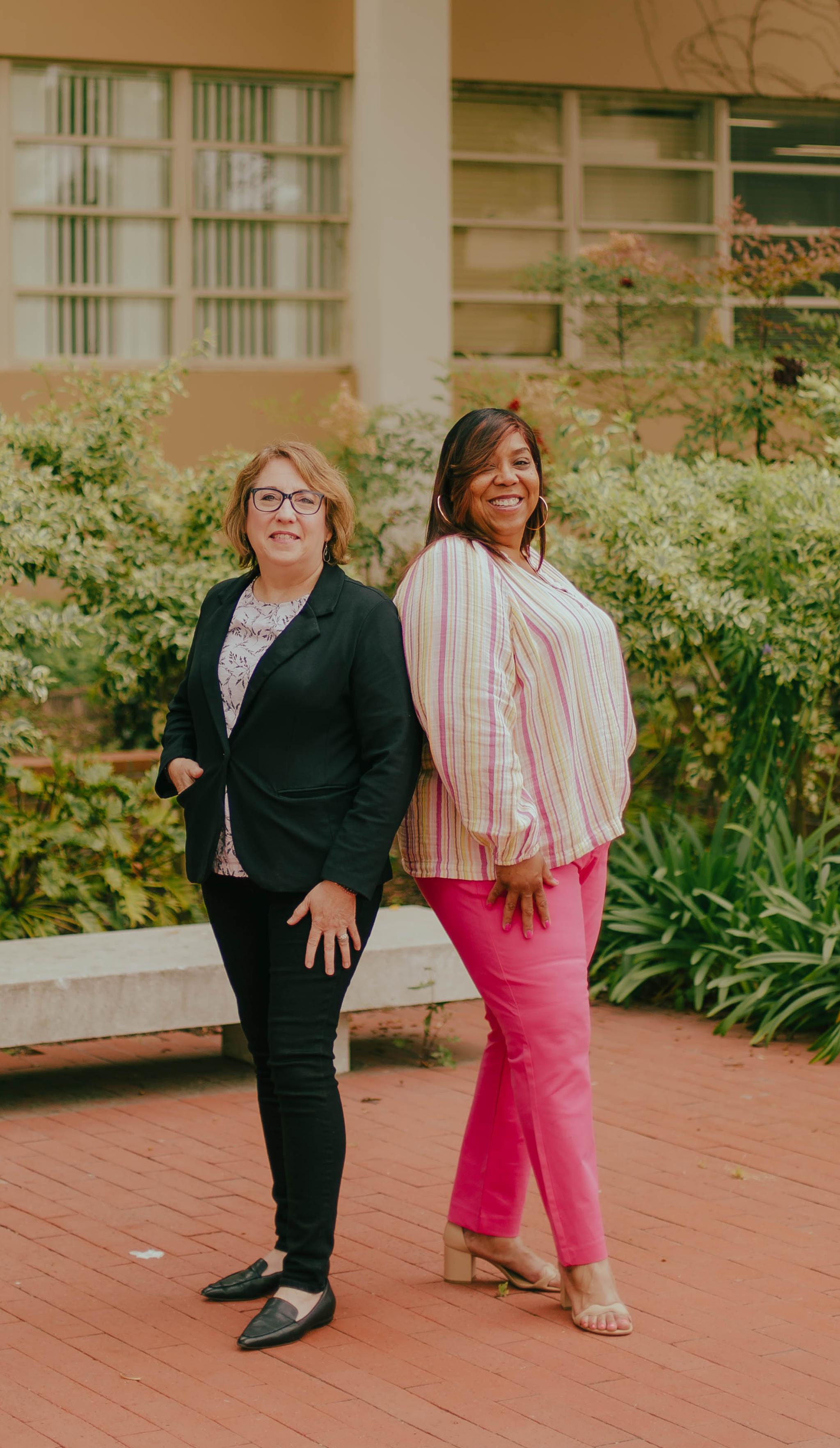
ISSUE 03 SEPT ‘ 23 College of Liberal Arts CAL STATE UNIV. LONG BEACH
CALIFORNIA STATE UNIVERSITY, LONG BEACH
Aspire is a publication of the College of Liberal Arts at California State University, Long Beach.
PRESIDENT Jane Close Conoley
PROVOST
Karyn Scissum Gunn
DEAN
Deborah Thien
ASSOCIATE DEAN
Dan O'Connor
Seiji Steimetz
EDITOR
Robin Jones
WRITERS
Vittina Ibanez
Olivia Peay
DESIGN
Natalie Barr
PHOTO Em Chen
California State University, Long Beach, 1250 Bellflower Blvd., Long Beach, CA 90840-4601
ON THE COVER: Tanisha Peoples and Julie Ortiz. Photo by Em Chen.
ON THE BACK:
Photo by Em Chen.

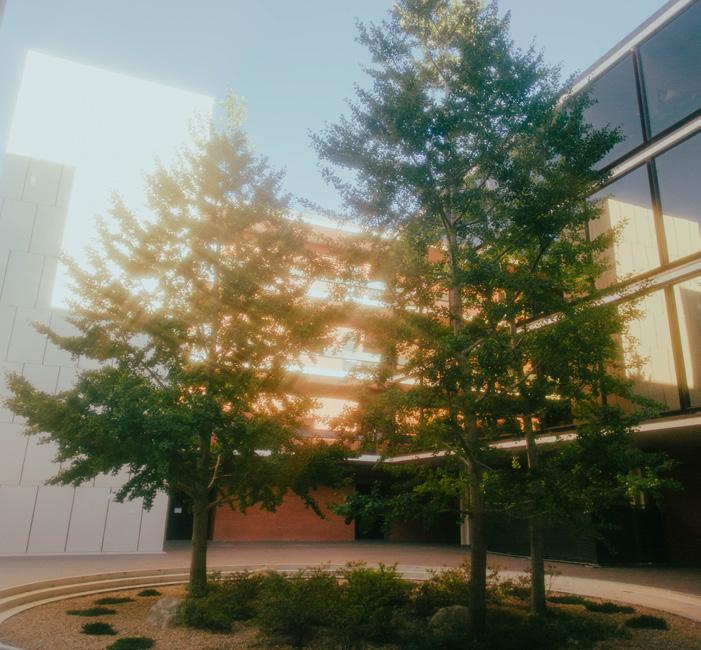
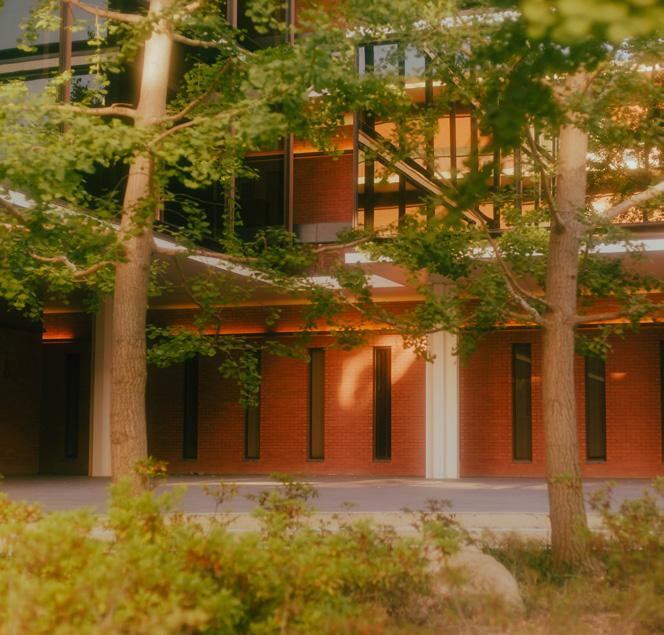
01 03 New Tenure-Track Faculty 6 Tenured and Promoted Faculty . . . . . . . . . . . . 12 Faculty News & Notes 15 CONT NTS table of FOCUS ON FACULTY STUDENT SUCCESS FEATURED STORIES Winning Ways 20 CLA in the Community 24 Student News & Notes . . . . . . . . . . . . . . . . . . . 29 02
DEAN’S LETTER
Dear reader,
Welcome to the third annual issue of Aspire, the magazine that celebrates all of the great work happening here in the College of Liberal Arts.
Last year was an exciting one for the CLA. In the fall, we hosted the first CLA Day on campus to promote our majors and minors to CSULB students. Then, in the spring, we welcomed newly admitted students to our Discover CLA showcase at the inaugural Day at the Beach. Both events were a resounding success, allowing us to connect with students and each other.
We also cheered as several of our faculty and staff were recognized by the university and professional organizations. You can read about the awards and our colleagues who were honored in this issue. You’ll also get to learn a little bit more about the CLA’s 12 new tenure-track faculty members, and you’ll hear from the undergraduate and graduate students who won the college’s top awards this spring. I think you’ll find all of their stories inspirational. I know I did.
It is my honor to lead this college, where so many people are doing creative, exciting and important work. I hope you enjoy this issue. Thank you for reading, and let us know what you think!
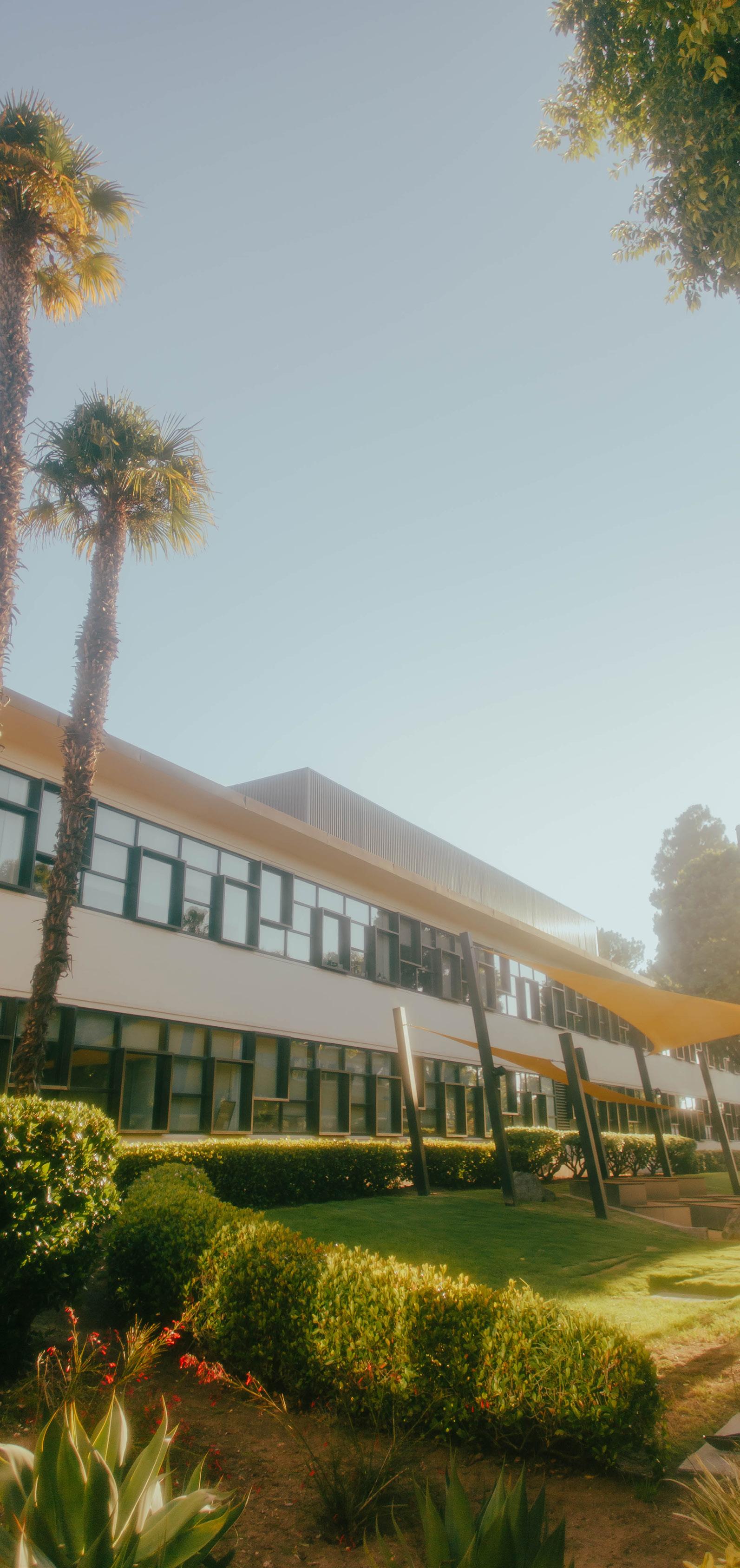
All the best, Dean
Deborah Thien
ASPIRE
4
FOCUS on FACULTY
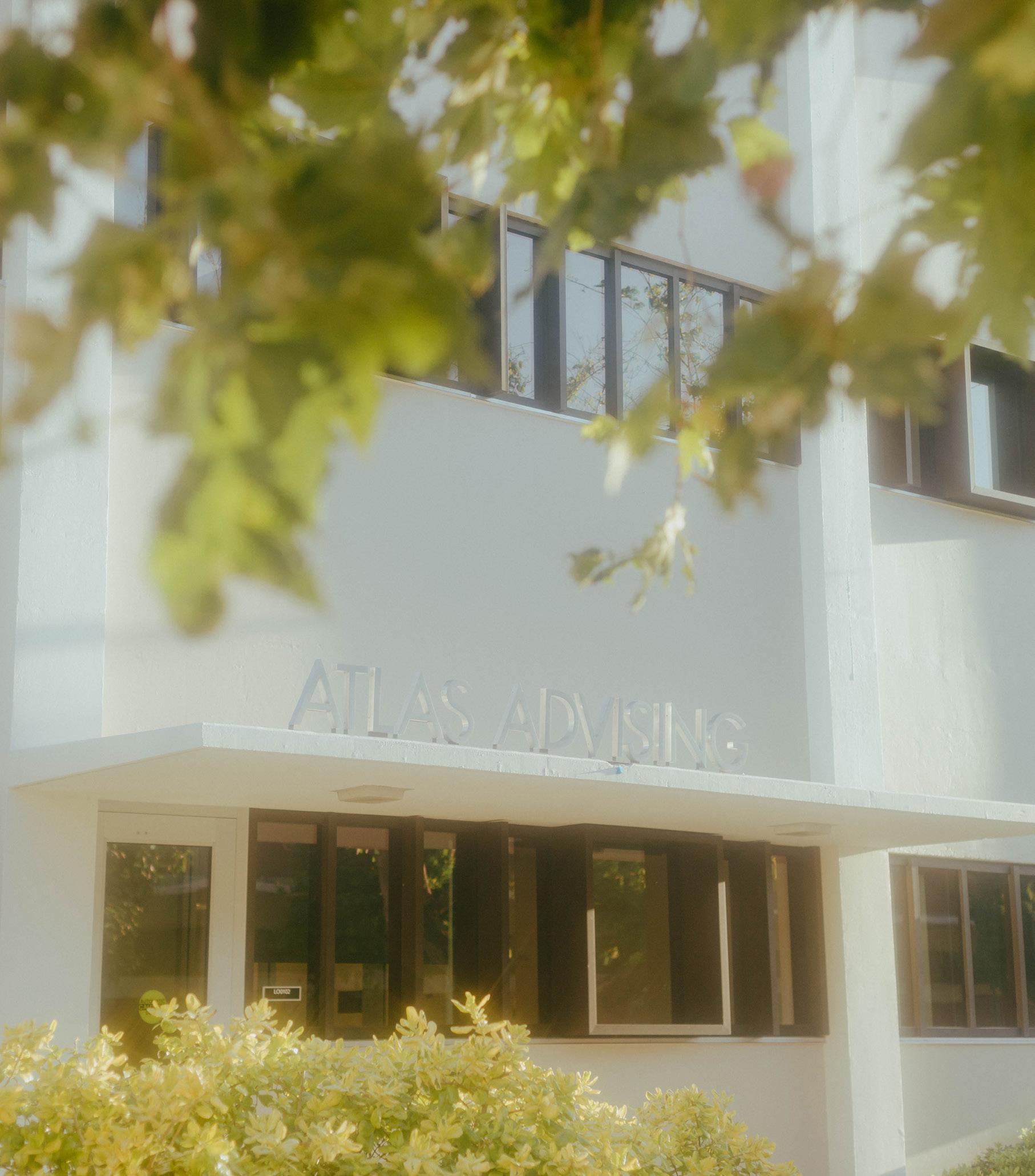
ASPIRE 1.0 5
New TENURE-TRACK faculty
WRITTEN BY Vittina Ibanez & Olivia Peay
María Sánchez-Reyes Romance, German and Russian Languages and Literatures
DR. MARÍA SÁNCHEZ-REYES joins the romance, German and Russian languages and literatures department as a tenuretrack professor this fall. Holding M.A., MPhil, and Ph.D degrees in French literature, thought and culture from New York University, her main research focuses on medieval French and Occitan sound and manuscript studies.
This fall, Dr. Sánchez-Reyes is teaching French for Spanish Speakers, Modern French Culture, and Self and Society. Along with the classes she will be instructing, she will continue researching and working with “manuscripts and their ability to hold sound.”
While Dr. Sánchez-Reyes did not always want to be a teacher – in fact, when she was a child, she wanted to be a marine biologist – it was a choice that felt natural to her. “I hadn't specifically considered it, but the most rewarding aspects of my academic journey revolved around teaching,” she said.
She is excited to meet and get to know her CSULB students and hopes to bring “a unique perspective and adaptability,” based on her study in diverse institutions, to her teaching at CSULB.
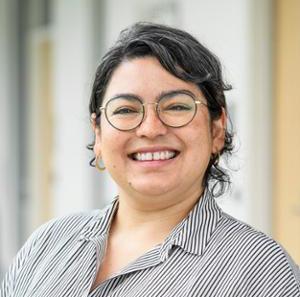
“As a trained philologist,” she said, “I aim to help students become more attentive to details, enhancing their understanding and analysis of various subjects through a focus on language intricacies.”
Shivani Bothra Religious Studies
DR. SHIVANI BOTHRA has taught courses and given lectures about Jainism and Buddhism around the world, in institutions as far away as New Zealand and India, and as close as Houston, Miami and Santa Barbara. This fall, she is joining CSULB’s religious studies department as the endowed chair in Jain studies.
Dr. Bothra received her doctorate in religious studies from Victoria University of Wellington, New Zealand, in 2018. She found her passion for teaching later in life; for many years, Bothra worked with her husband at his graphic design studio.
“I was always intrigued by the process of learning and teaching for better human beings,” Dr. Bothra said.
This fall, Dr. Bothra is teaching courses focused on Jainism, Indian religions, nonviolence, and texts. She will also continue to research Jain communities, and specifically their relationships with nonviolence, religious education and women’s rights.
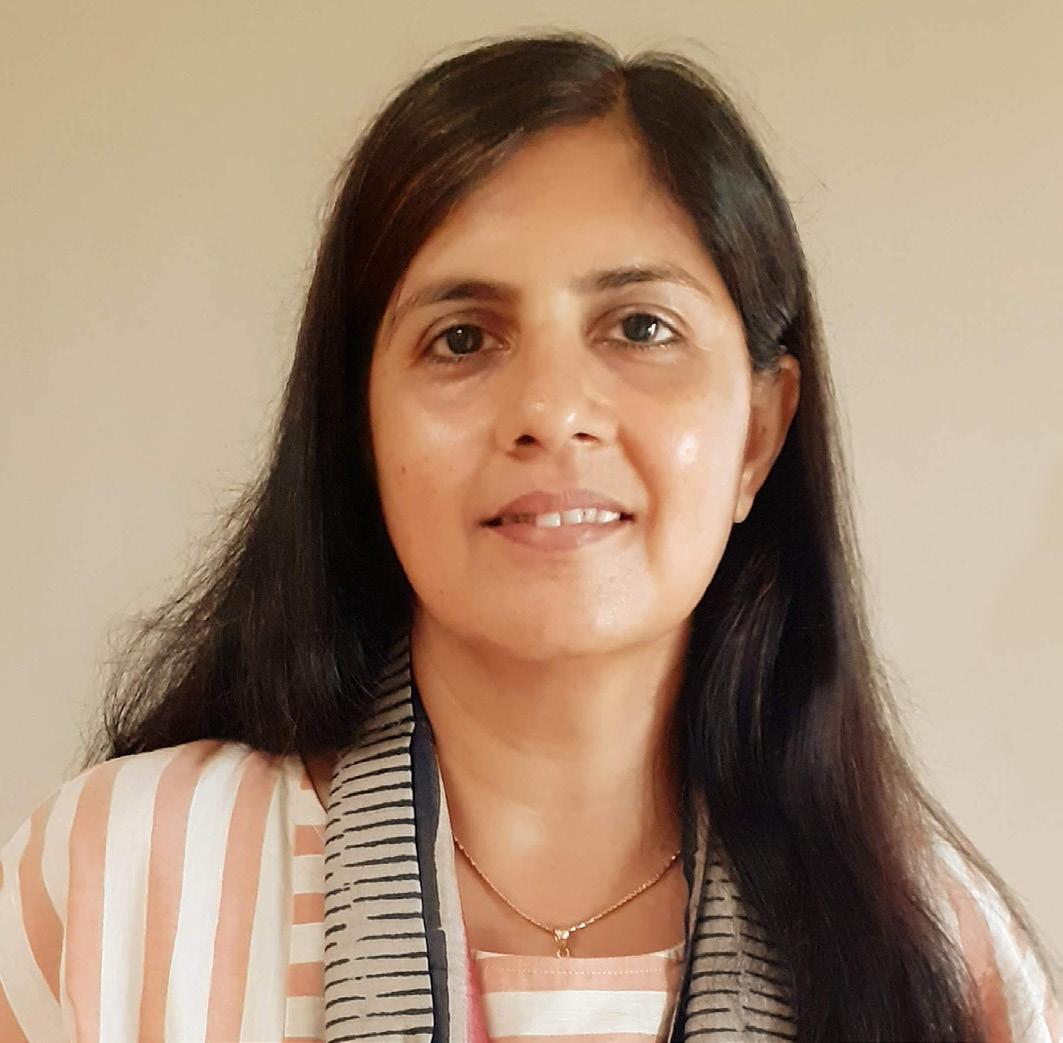
“Through close interaction and personal experiences, I have had the opportunity to accompany Jain monks and nuns in India, which gradually sparked my interest in studying these communities in a systematic and scientific manner,” Dr. Bothra said.
Dr. Bothra is excited to join the “wonderful collegial group” at CSULB and to be back in the classroom, where she calls her teaching style “student-focused.”
“My teaching philosophy is to continuously be a student first in order to be a good teacher,” she said.
ASPIRE 1.1 6
Martha C. Franco Sociology
DR. MARTHA C. FRANCO joins the sociology department this fall. She will be teaching classes on qualitative research methods, as well as race, gender and class.
Dr. Franco holds a bachelor’s degree in history and ethnic studies from Brown University and a doctorate from Harvard University, where she recently finished a postdoctoral fellowship. Her research focuses on unaccompanied youth migration from northern Central America and their experiences with immigration, education and labor.
“My inspiration comes from multiple experiences that I share with the young people I work with,” she said. “As a Salvadoran American and as an educator, I wanted to understand the longer history of Central American youth migration and how that history can shape the various precarities these youth face once they are in the United States.”
While at CSULB, Dr. Franco hopes to continually expand her work with youth migrants from Central America as they navigate life beyond school settings.
A first-generation student growing up in Pico Rivera in a Salvadoran immigrant family, she wanted to become a lawyer until she got to college and learned what it meant to get a Ph.D. and become a professor. Now, she is eager to teach CSULB students.
“My hope is that I am able to teach students how to be critical readers, writers, and speakers,” Dr. Franco said. “I want to ensure that my classroom is a space for students to feel like they can bring multiple perspectives, while also learning not just from me, but also from each other.”
Felicia Montes Chicano and Latino Studies
FELICIA MONTES joins the CSULB faculty this fall as the new assistant professor in Chicana/o/x Latina/o/x arts and social practice, where she will focus on art, social justice, and community engagement in her classes and academic endeavors.
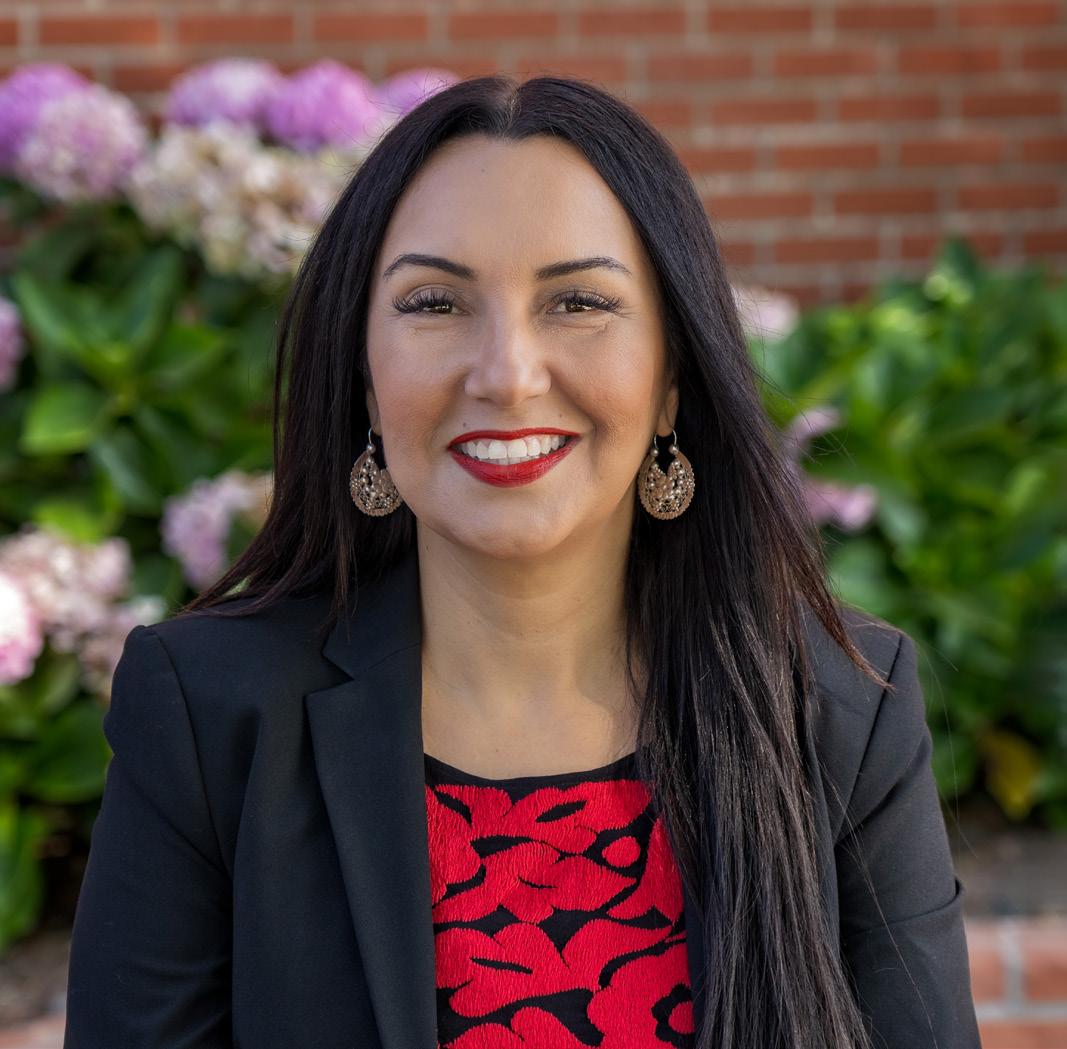
Montes received an M.F.A in public practice arts from Otis College of Art & Design, an M.A. in Chicana/o studies from CSU Northridge, and a B.A. in world arts and cultures from UCLA. This fall, she will teach Introduction to Ethnic Studies.
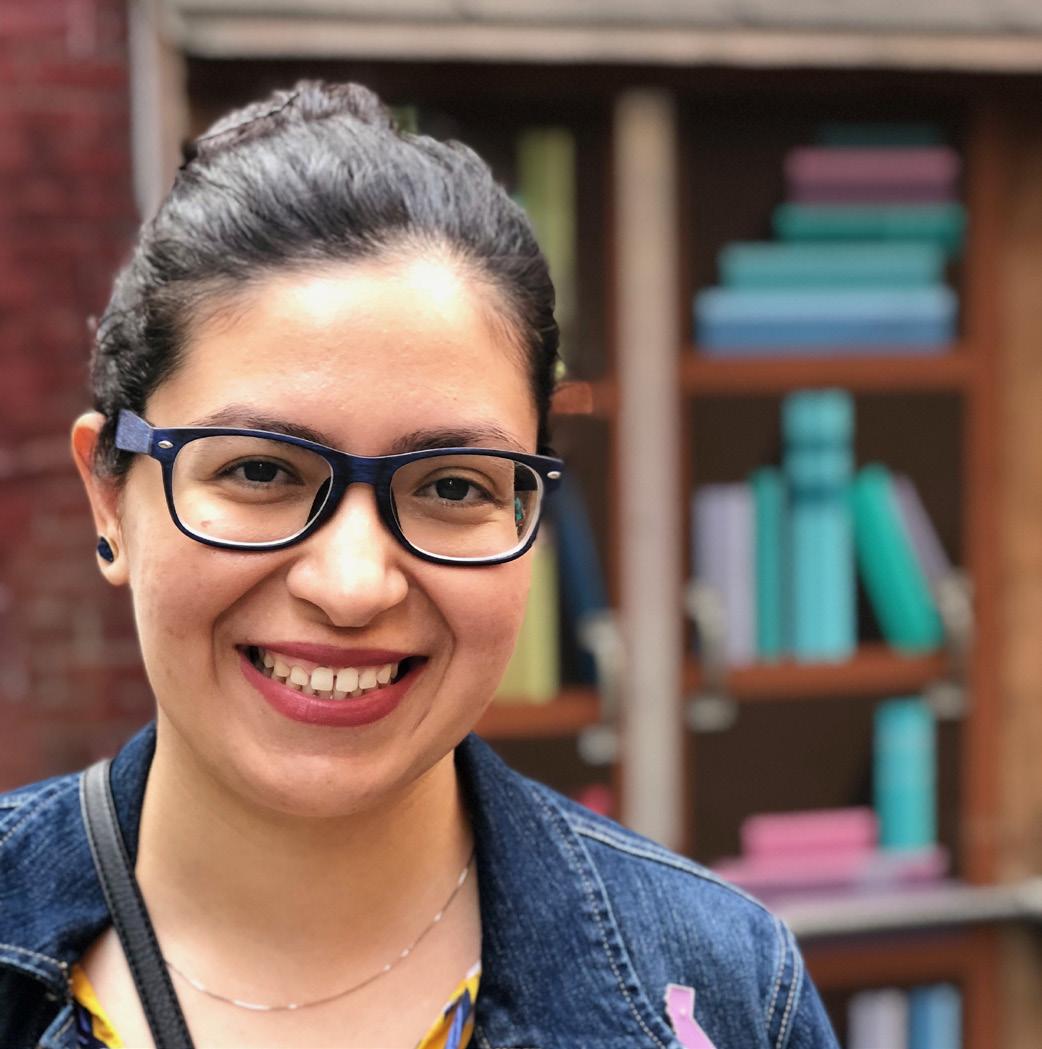
Montes has long worked at the intersection of art, activism and academia, in community organizing, education, arts and cultural centers, and non-profit organizations. A book documenting her work in art and social justice, "Mujeres de Maiz en Movimiento: Spirituality, Healing Justice and Feminist Praxis," will soon be published.
As a practitioner of many art forms, Montes believes that maintaining a safe learning environment for her students is crucial, so they may learn to honor each other while discussing pertinent issues.
“My teaching philosophy is rooted in the belief that all people have embodied knowledge and cultural wealth,” Montes said. “I make sure that my classroom remains student-centered, striving to create a safe space as we discuss and attempt to dismantle the intersecting issues of racism, classism, sexism, homophobia and more. I truly believe that it is important to validate and support the process of each student’s consciousness-raising and journey.”
ASPIRE 7
Carie Rael History
A proud product of the CSU system, DR. CARIE RAEL is excited to be joining the faculty of the history department this fall.
Dr. Rael received her bachelor’s and master’s degrees in history at Cal State Fullerton and her Ph.D. in history, with an emphasis in U.S. history and woman and gender studies, at Rutgers University. She is teaching Reaching U.S. History 1865-2020 and Methodologies of History this fall.
Latinx U.S. history is Dr. Rael’s main field of study. Her research delves into the history of Latinx grassroots activism in Orange County around issues of police violence, redevelopment and immigration. “I wanted to contribute to an area of history that is often marginalized to demonstrate how integral Latinx history is within the United States,” she said.

Dr. Rael believes in teaching collaboratively and collectively with the students. “I hope that we each learn from each other and learn to engage in difficult topics with empathy and respect,” she said.
She’s also thrilled to teach on a campus where the students are familiar with her area of research. “I hope students see aspects of their histories reflected in my work and teaching,” she said.
Ann Tran Asian and Asian American Studies
DR. ANN TRAN is the newest faculty member in the department of Asian and Asian American studies. This fall, she is teaching Introduction to Racial and Ethnic Studies and Asian American History; in the spring, she'll teach Asia and Globalization.
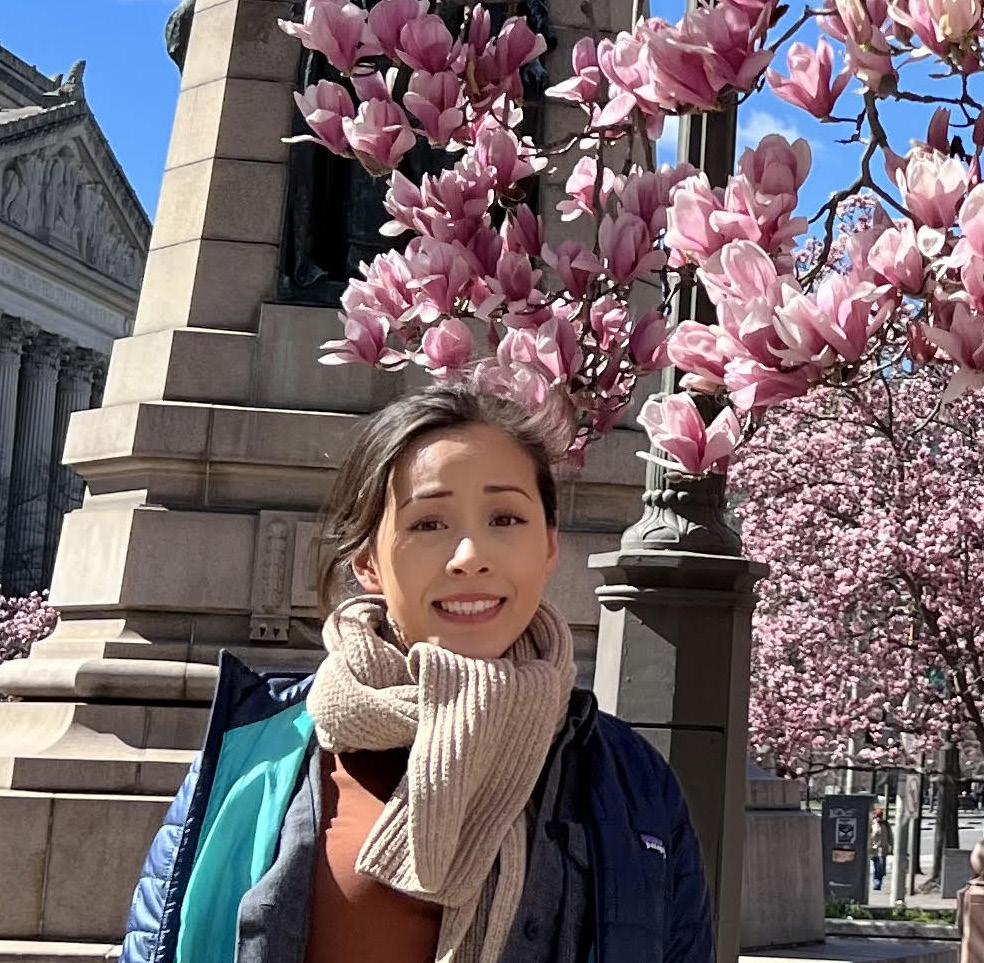
Dr. Tran received her A.A. in English, history, social sciences and arts and humanities at Chaffey College and subsequently enrolled at UCLA, where she pursued her bachelor’s degree in English. Inspired by the faculty of color and her peers’ critical race theory-based research and interests, she joined the 2015 McNair Research Scholars Program cohort, developed a commitment to diversifying the academy, and decided to study for a Ph.D., which she earned in comparative literature with an emphasis in Asian American studies at UC Irvine.
Her research focuses on the lived realities of Vietnamese refugee women and subsequent generations of Vietnamese refugees, inspired by her mother’s experience as a nail salon worker and single mother of three. “Her story undergirds the purpose of my research in telling the stories of our refugee communities,” Dr. Tran said.
In the classroom, Dr. Tran hopes to “foster a space of community, solidarity and mutual understanding as we learn together and from each other the critical issues that affect our communities and the ways our communities have creatively and actively resisted systems of power.”
ASPIRE 8
Worapron Worawongs Chanthapan
Journalism and Public Relations
DR. WORAPRON WORAWONGS CHANTHAPAN worked as a communication analyst in Los Angeles before falling in love with teaching in Thailand.
For eight years, she served as a lecturer in the communication arts and design faculty at Stamford International University, eventually rising to associate dean and dean of the faculty. She also taught communications-related classes for two years in the communication arts international program at Chulalongkorn University in Bangkok.
This fall, she’ll return to California to join the faculty in CSULB’s journalism and public relations department. Dr. Chanthapan was drawn to CSULB’s deep appreciation and devotion to giving diverse communities the opportunity for higher education.
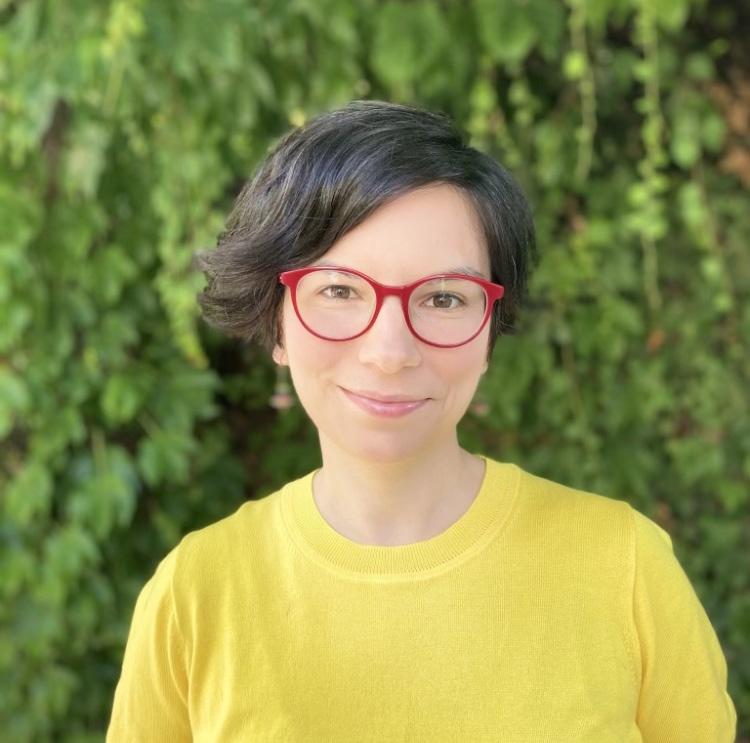
Dr. Chanthapan specializes in crisis communications and public relations. She received her bachelor’s, master’s and doctorate degrees in communications from Fordham, Pepperdine and Pennsylvania State, respectively.
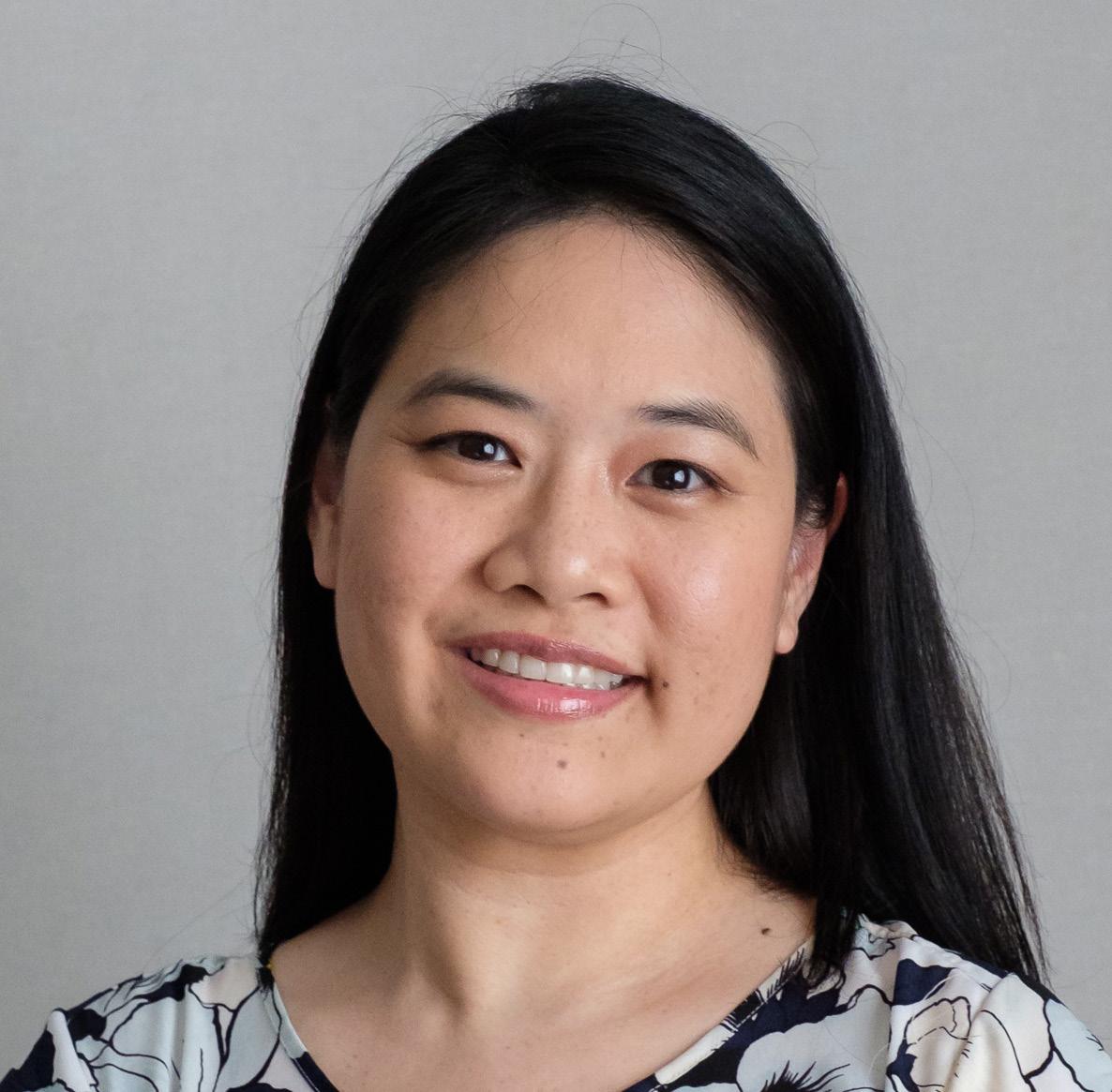
In her new position, she hopes to prepare her students for the professional world through “hands-on projects that mirror real-world industry scenarios, enabling them to gain valuable professional experience and develop their professional portfolio.”
And she is excited to meet her students. “When I came to CSULB for my interview, I had the opportunity to experience first-hand the classroom environment,” Dr. Chanthapan said. “The students’ active engagement in the class discussion made me want to become part of the CSULB community.”
Kate Flach History
DR. KATE FLACH, a lecturer in the history department since 2019, has been promoted to assistant professor and joins the tenure track this fall. An expert in modern U.S. history, with a focus on popular culture, race, and gender, Dr. Flach received her bachelor’s and master’s degrees at the University of Akron and her doctorate in history from UC San Diego.
Dr. Flach will teach courses on Representations of Blackness after the Civil Rights Movement, Women’s History after 1850, and Historical Methods, as well as graduate seminars. She will also continue to work on her book, “Producing America: Race, Television, and National Identity.”
A first-generation college student, Dr. Flach aims to create an environment that allows students to think for themselves, develop their own informed arguments, and make their own sense of history in order to come to grips with the world we live in.
“In the classroom, I achieve this through the development of interdisciplinary coursework that reflects new approaches from the public humanities and a central concern with how popular culture has shaped society,” she said.
In her new position, Dr. Flach looks forward to developing new courses and having the resources to focus on her research. “Having worked at CSULB as a lecturer for four years, I have gotten to know the institution and its students,” she said. “I thoroughly enjoy teaching the students at CSULB and I have developed a community of friends and colleagues who are an invaluable part of my life.”
ASPIRE 9
Tom Do English
DR. TOM DO, a CSULB alum, joins the faculty in the English department this fall. He will lead courses in English proficiency and teaching composition.
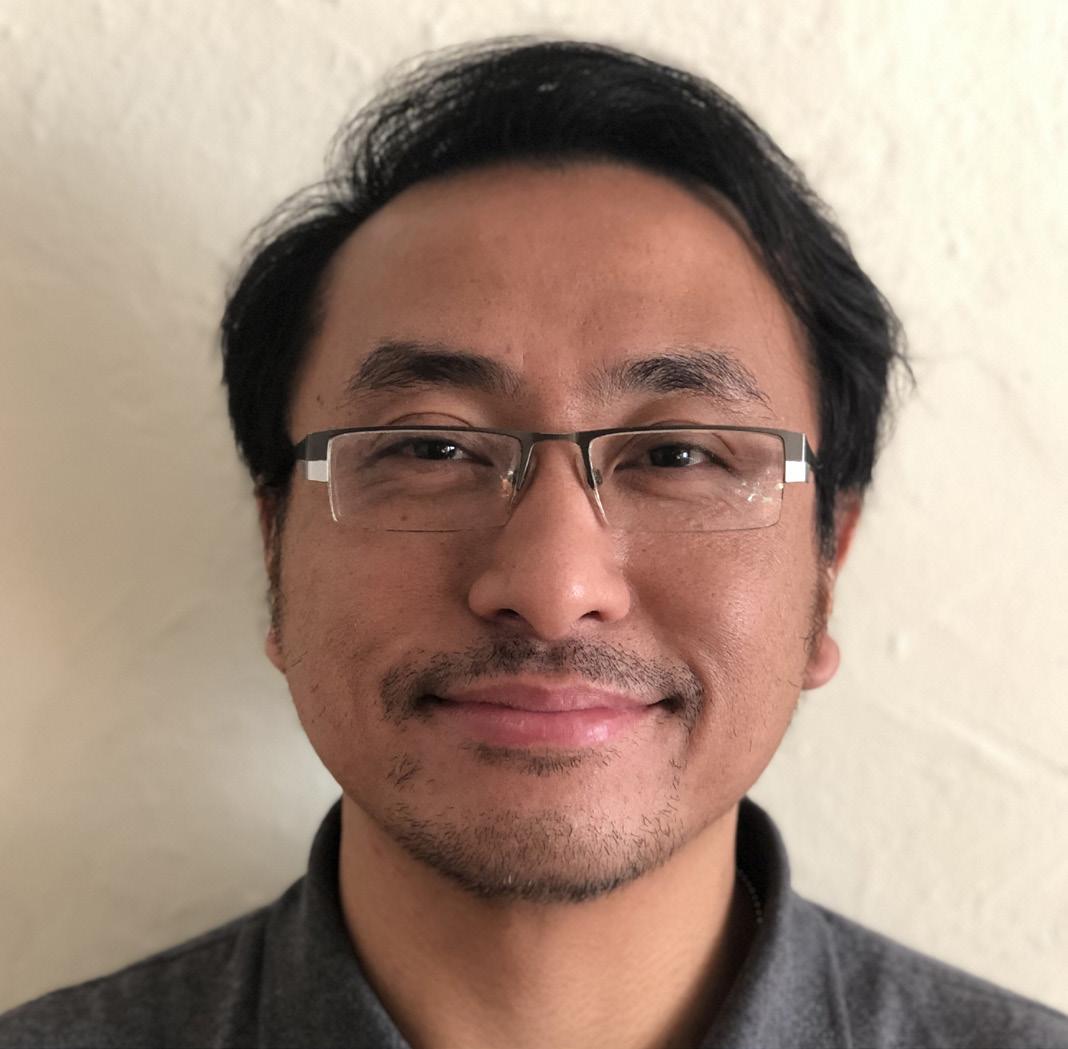
In his research, Dr. Do focuses on embodied rhetoric, a field he gravitated to because he is “fascinated by how bodies communicate.” In an upcoming article for the journal College English, he examines the relationship among labor, bodies, and race.
In the classroom, Dr. Do aims to create a shared learning environment that places a premium on listening and dialoguing. To create a space for multiple perspectives, he employs discussion carousels: He presents questions on large sheets of paper throughout the classroom, and students circulate around the room, responding to each other on sticky notes.
“I find that discussion carousels momentarily disrupt the power dynamics by centering the voices of students who are often silenced by racial, gender or class discrimination,” he said. “By having students reflect and respond to each other, they practice rhetorical listening and organically create dialogue that empowers all students to speak.”
Dr. Do, who originally planned to become a high school English teacher, earned both his B.A. and M.A. at CSULB and received his Ph.D from the University of Arizona.
“I am very excited to be back at my old stomping grounds where I get to work, teach, and learn with engaged students, faculty, and staff at CSULB,” he said. “I am humbled to be back to serve the CSULB community.”
Sachiko Sakai Anthropology
DR. SACHIKO SAKAI first started teaching in the anthropology department at CSULB in 2005. This fall, she’ll join the tenure track as an assistant professor.
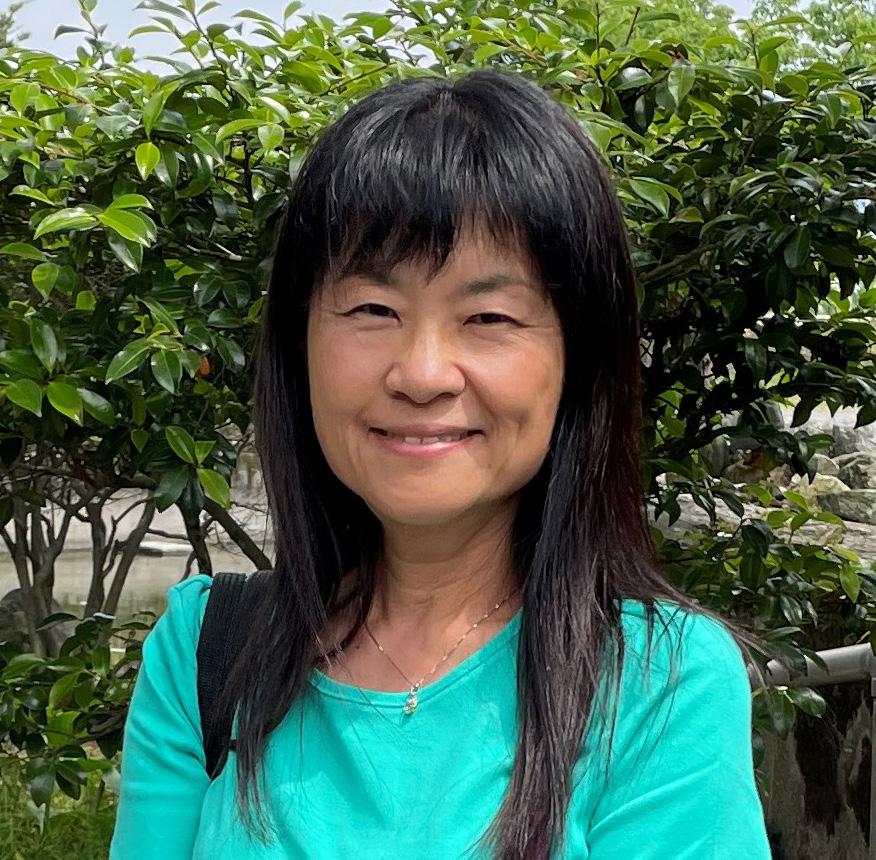
Dr. Sakai has taught multiple courses in her time at the Beach, including Cultural Resource Management, Prehistoric Culture of North America, and Archeology of California. She’ll continue to teach those classes, as well as the Mt. Trumbull Summer Field School, where she leads undergraduate and graduate students in surveying and documenting prehistoric sites in the Mt. Trumbull area of the Grand Canyon Parashant National Monument in Arizona.
Her research focuses on ceramic analysis, prehistoric social interaction, and cultural resource management. Her fieldwork has included excavations, pedestrian surveys, and remote sensing surveys using the magnetometer, ground penetrating radar, and drone mapping.
Dr. Sakai initially landed at CSULB as an international student from Japan. She received her M.A. in archaeology at the Beach and her Ph.D. from UC Santa Barbara. As a teacher, Dr. Sakai hopes to give students hands-on experiences that help them connect their classroom knowledge to the real world. She also aims to enhance their interactions with descendant communities to help them develop a better understanding of our prehistory.
“I believe that archaeology has to contribute to our current society and that a mutual understanding with descendant communities is an important requirement when conducting any kind of archaeological research,” she said.
ASPIRE 10
Brenda Gutierrez Psychology
CSULB alum DR. BRENDA GUTIERREZ earned her bachelor’s degree from the very same department she will be joining as a new tenure-track faculty member this fall. In 2016, she earned her bachelor’s degree in psychology from the Beach; she went on to receive master’s and doctorate degrees in the discipline from UC Santa Cruz.
Growing up, Dr. Gutierrez always knew she wanted to be a teacher and that she had a passion for psychology. It was during her undergraduate days at CSULB that she was able to put action to those visions she had for herself.
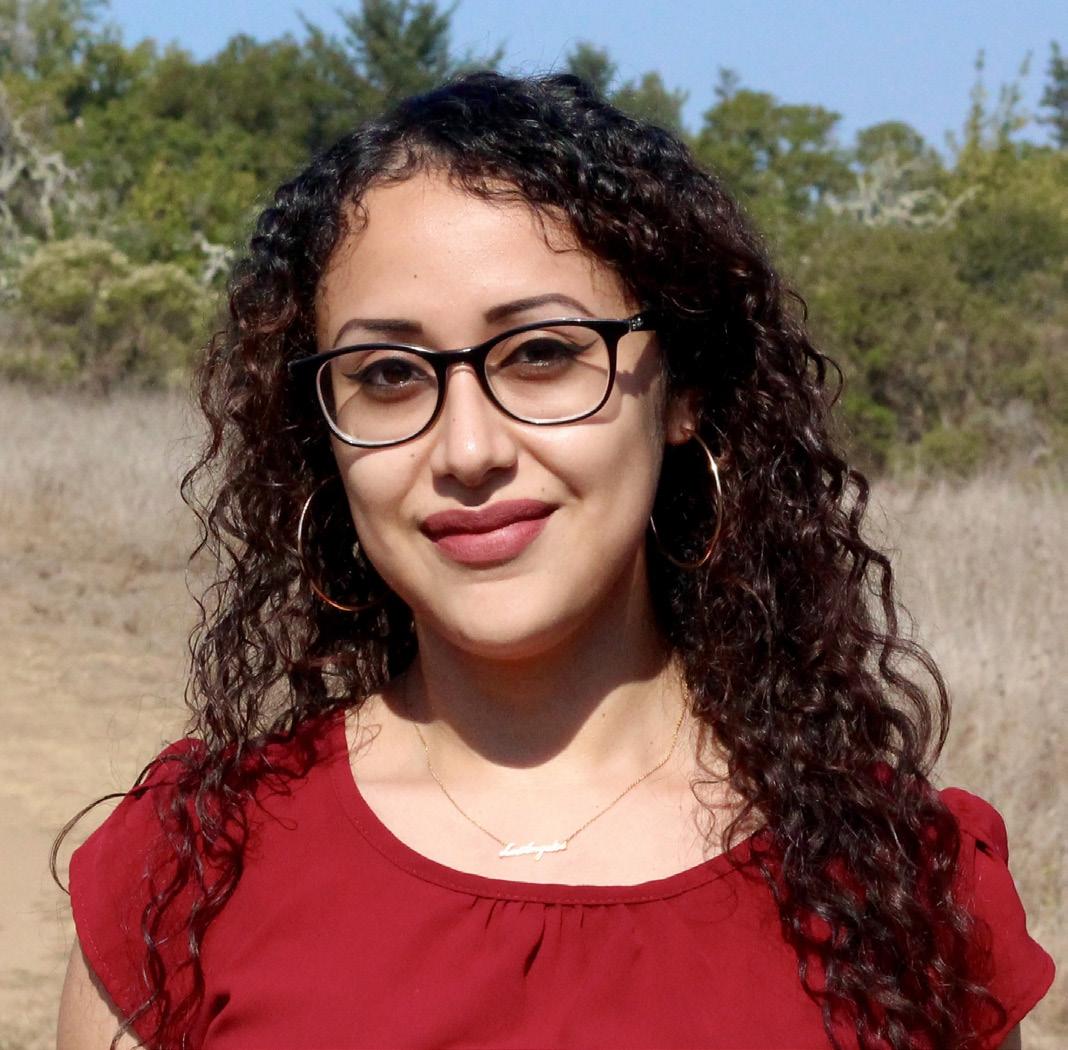
“In college, I began working as a research assistant, and from that experience, I learned that I loved research,” she said. “So becoming a professor was the perfect fit to mix my passions for teaching, psychology and research.”
Dr. Gutierrez’s experiences as an undergraduate are what drew her back to teach at the university. “It was clear to me that the psychology department really prioritized their students,” she said. “After I graduated and went off to graduate school, it was always a goal of mine to return to the CSULB community to pay my experiences forward.”
She will be doing just that this fall as she teaches courses focusing on her main area of research: developmental psychology, or the experiences of young adults and adolescents within their most formative years and how they develop identity, ideas and attitudes about their culture and gender.
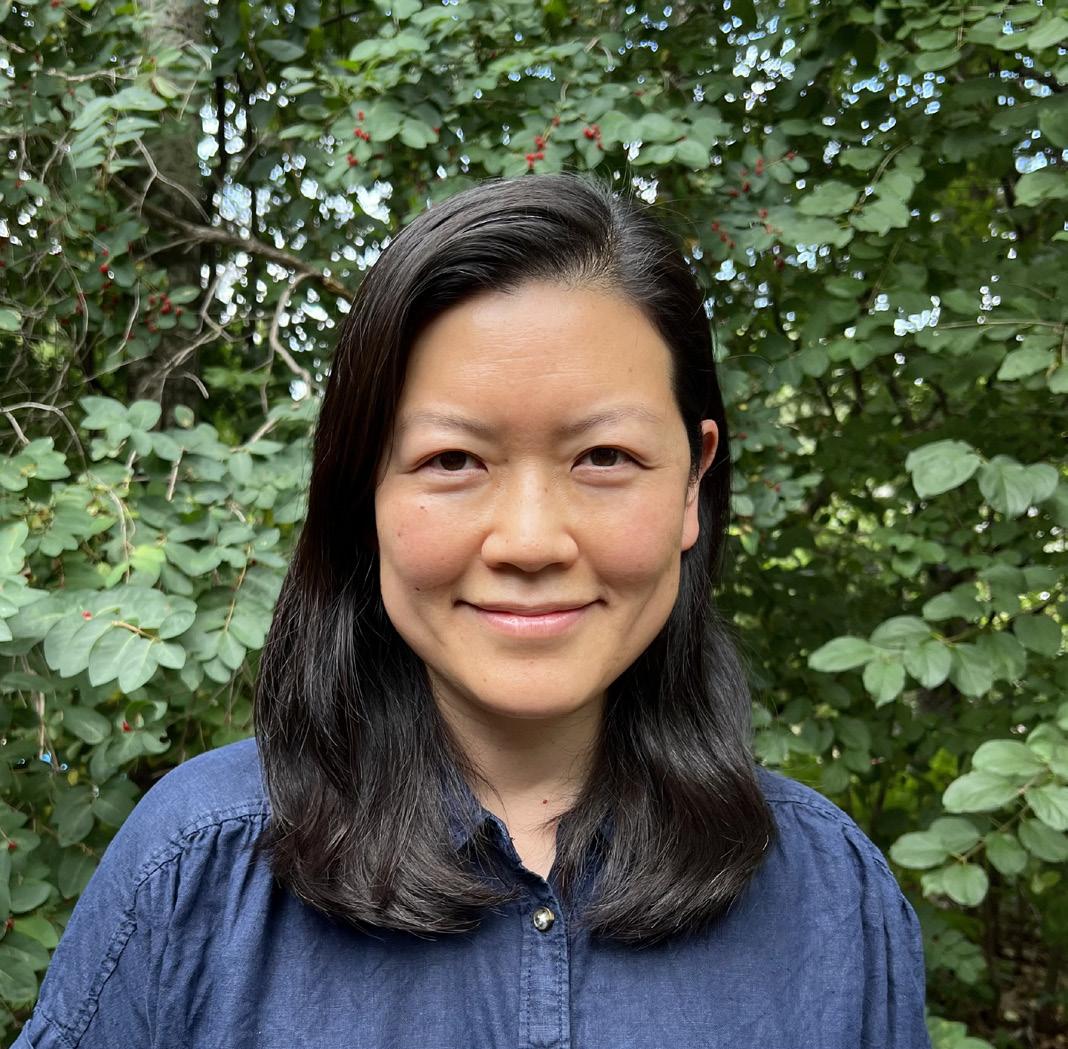
“My research program was inspired by my curiosity of questions about culture and gender stemming from my own experience and that of those around me,” she said.
DR. MARIE JAYASEKERA, a CSULB lecturer since 2018, joins the tenure track in the philosophy department this fall. While teaching Philosophy 101 and an upper-level undergraduate/graduate course on John Stuart Mill’s moral and political philosophy, she’ll continue working on two ORED-funded research projects at the university: the first on how early modern (17th- and 18th-century) philosophers in the Western philosophical tradition draw on experience in their arguments about the nature of free will, and a second on how less-discussed early modern thinkers conceived of “custom” as a potential threat to human agency.
Dr. Jayasekera received her bachelor’s degree in biology from Yale and wasn’t even considering a career in academia until she took a night class in the history and philosophy of science while she was working as a research assistant for a program evaluation company in Boston. Subsequently, she earned master’s and doctorate degrees in philosophy from Tufts and University of Michigan, respectively, and began to study early modern philosophy.
“Because thinkers in the period didn’t specialize in the way academics do today, studying and teaching early modern philosophy allows me to explore answers to all sorts of questions regarding the nature of reality, knowledge, the state, morality, and human nature,” she said.
She’s looking forward to contributing “more fully to the life and work of my department and the university.”
“I’ve been energized by the intellectual curiosity and resilience of the students at CSULB since beginning as a lecturer in 2018, and I've found the philosophy department and the university a supportive place to grow as an educator and philosopher,” Dr. Jayasekera said. “I am thrilled to join the tenure track.”
ASPIRE 11
Marie Jayasekera Philosophy
TENURED & PROMOTED faculty
WRITTEN BY Vittina Ibanez & Olivia Peay
Gabriella Hancock Psychology

DR. GABRIELLA HANCOCK, whose research focuses on human-technology interaction and human performance under stress and workload , has received tenure and been promoted to associate professor.
Dr. Hancock’s classes generally focus on human factors. She earned both a bachelor’s degree and a doctorate in psychology from the University of Central Florida, as well as a master’s degree in applied physiology and kinesiology from the University of Florida and a master’s degree in industrial engineering from the University of Central Florida.
Dr. Hancock has been honored with a number of awards for her teaching and has been granted membership into many professional affiliates, including the Human Factors and Ergonomics Society and the American Psychological Association.
Human Development
H. Isabella Lanza
DR. H. ISABELLA LANZA has been promoted to full professor. A member of the human development faculty, she teaches several undergraduate courses that educate students on statistics and quantitative data in the behavioral and social sciences.

Dr. Lanza’s research seeks to identify the relationships between health-risk behaviors across adolescence and young adulthood, examining self-regulatory, contextual, and psychological processes that inform the development of co-occurring health risks.
She recently completed a term serving as the CLA director of research and continues to direct the Risky Health Among Adolescents and Young Adults (RHAYA) lab.
ASPIRE 1.2 12
These CLA professors are taking the next step in their academic careers
Adam Kahn Communication Studies
DR. ADAM KAHN, who teaches undergraduate and graduate courses in communication and technology, media effect, and quantitative research methods, received tenure and was promoted to associate professor.
Dr. Kahn’s research focuses on the social and psychological issues of communication technology, including virtual reality, social media and video games. Most recently, he has conducted studies on how these technologies can be used to elicit emotions to bring about prosocial behavior. Along with publishing his own studies, he helps students conduct, present and publish original quantitative research that aligns with their own passions.
Dr. Kahn also leads CSULB’s Accelerating Student Success and Equity in Teaching (ASSET) program, which helps faculty across campus reimagine their classes according to best practices in equitable pedagogy.
Kristy Shih Human Development
DR. KRISTY SHIH was promoted this spring to full professor. She has been teaching in the human development department since fall 2018; previously, she taught at Central Michigan University.
Dr. Shih is a critical race feminist sociologist specializing in Asian Americans, immigrant and transnational families, adult development, intersectionality, and antiracist and social justice scholarship. She is an expert on the negative impacts of the model minority myth on Asian American youth, families, and communities.
Her current research explores the growing up and return migration experiences, as well as racial/ethnic and gender identities of Taiwanese “parachute kids” who were sent abroad at a young age for educational purposes while their parents stayed in Taiwan for work or other family reasons. She regularly teaches courses on adulthood and aging, cultural foundations in HDEV, and the impacts of racism on human development.
Claudia Maria Lopez Sociology
DR. CLAUDIA MARIA LOPEZ, whose research focuses on forced migration and displacement between Southern California and Colombia, has received tenure and been promoted to associate professor.
Dr. Lopez, who teaches in the sociology department, is inspired by her parents, Mexican and Colombian immigrants who were displaced by scarce work opportunities and war, in her research on migration and citizenship. She earned her doctorate in sociology from UC Santa Cruz.
Linna Li Geography
DR. LINNA LI has been promoted to full professor in the geography department. Dr. Li received her Ph.D. in geography from UC Santa Barbara and worked as a researcher at the Center for Spatial Studies for three years before she joined the Beach in 2013.
Dr. Li’s research interests focus on geographic knowledge representation, spatial analysis, and applications of Geographic Information Science. She adopts methodologies from other disciplines such as information sciences and social sciences.

Her current research focus is geospatial artificial intelligence, a newly emerging field that draws on statistical modeling, computer vision, machine learning, and simulation tools, such as urban studies using big geographic data. Collaborating with colleagues in the geography and education departments, she received a multidisciplinary research grant to improve STEM education by integrating geospatial technologies into the K-8 mathematics curriculum.
Journalism & Public Relations
Gwen Shaffer
DR. GWEN SHAFFER was promoted to full professor this spring. Dr. Shaffer, who joined the journalism and public relations faculty in 2011, was also recently named the co-director of research for the College of Liberal Arts.
Dr. Shaffer’s research focuses on the data privacy implications of “smart city” technologies like surveillance cameras and automated license plate readers. She is currently collaborating with the city of Long Beach on a National Science Foundationfunded project. The research team is designing and deploying a digital rights platform focused on the city’s vision to use data in ethical ways that avoid reinforcing existing racial biases and discriminatory decision-making. She teaches internet regulation and communication law classes.
American Indian Studies
Theresa Gregor
DR. THERESA GREGOR has received tenure and was promoted to associate professor in the American Indian Studies department. Dr. Gregor, a first-generation college graduate, earned her Ph.D. at the University of Southern California. Currently, she teaches several courses on Native American studies and ethnic experience.
Her primary areas of research are grounded in California/American Indian experience, in particular that of California Indian women; cultural revitalization; language repatriation; resilience; and decolonization. As a proud descendant of the Iipay Nation of Santa Ysabel, Dr. Gregor seeks to give back to tribal communities through her community-based research. She is a member of the non-profit and tribal-led Inter Tribal Long Term Recovery Foundation,which has a mission to increase community resilience from disasters on Indian lands.
She also serves as a lead faculty facilitator for the Committee on Native American Burial Remains and Cultural Patrimony at CSULB, and in 2022, she was nominated as the organization’s provost designee.
Story Section ASPIRE 13
Human Development
Ann Y. Kim
DR. ANN Y. KIM has earned tenure and been promoted to associate professor in the department of human development.
Dr. Kim attended the Gevirtz Graduate School of Education at UC Santa Barbara. There, she received her Ph.D. in education with an emphasis in child and adolescent development and quantitative methods in social sciences.

Examining the identities of individuals and how they identify in educational settings, including science, technology, engineering, and mathematics, is Dr. Kim’s primary focus. She works closely with STEM faculty members in conversations about retention and graduation of minoritized STEM students. She teaches several adolescent development courses, as well as quantitative research methods in social sciences.
Communication Studies

Jessica Russell
JESSICA RUSSELL, an expert in strategic communication in health and interpersonal contexts, was promoted to full professor this spring. Her research aims to inform planning procedures and strategies employed in initiating conversations about end-of-life care and respective conversational outcomes. Her latest research building on this agenda explores different role orientations to conversational engagement and how diverse members of the interdisciplinary team might broach endof-life care conversations.
Dr. Russell teaches upper-division and graduate courses in research methods, including both quantitative and qualitative approaches to data analysis. She is active in department, college, university, and discipline service, including serving as a BUILD Beach mentor, CLA Faculty Council representative, faculty senator, and cochair of the Covid Equity Impact on Faculty Evaluation Task Force.
Political Science
Kathryn Perkins
DR. KATHRYN PERKINS received tenure and has been promoted to associate professor. Since 2017, she’s been teaching courses on law, politics, and policy in the political science department and has also served as an undergraduate advisor and internship director. Her research is at the intersections of public law, feminist theory, and transgender studies and primarily focuses on queer and trans jurisprudence and politics. This spring, she received the CSULB Early Academic Career Excellence Award.
Dr. Perkins is also a founding codirector of the CSULB Trans Advocacy Coalition, reflecting her commitment to scholar-activism and trans and gender justice on campus and beyond. She holds a bachelor of science degree in sociology from Abilene Christian University and master’s and doctorate degrees in political science from the University of North Texas.
Araceli Esparza English
DR. ARACELI ESPARZA has been promoted to full professor. She joined the English department in 2011 after earning her Ph.D. in American studies and ethnicity from the University of Southern California.
Dr. Esparza’s research focuses on the hierarchies within Latinidad as represented in literature and cultural production by Chicana/o/x and U.S. Central American writers and creative producers. She has published several articles on this topic and is working on a manuscript focused on intraLatina/o/x identity formation and power relations. She teaches courses focused on Chicana/o/x and Latina/o/x literature and cultural production, U.S. literature by people of color, gender and feminist theory, and 20th/21st-century U.S. literature surveys.
Dr. Esparza works to support programs whose efforts increase the academic success of historically excluded and underrepresented student populations, including students of color and LGBTQ, undocumented, first-generation, and working-class students. She was one of the co-facilitators who coordinated the writing and initial implementation of the 2022-2025 College of Liberal Arts Strategic Plan that focuses on increasing equity within CLA.
May Halim Psychology
DR. MAY HALIM first came to CSULB as an assistant professor in psychology in 2012. This spring, she was promoted to full professor. In addition to teaching, Dr. Halim serves as a program director for CSULB’s Center for Evaluation and Academic Effectiveness.
Dr. Halim has a bachelor’s degree from Stanford University and master’s and doctorate degrees in psychology from New York University. Her expertise and research focus primarily on the development of gender and racial intergroup attitudes and gender identity development among diverse youth. Her work has been published in numerous national academic journals, as well as in news media outlets such as CNN and NPR.
ASPIRE 14
FACULTY news & notes
An English professor’s passion earned him a nomination for a national award
English professor DAVID HERNANDEZ’s admiration for the art world has no bounds. That appreciation was on full display in his fifth book of poetry, “Hello I Must Be Going,” which was named a finalist for the National Book Critics Circle award this spring, something he sees as a “tremendous honor.”

Works by acclaimed artists like Ed Ruscha, Jean-Michel Basquiat, Ai Weiwei and Marina Abramović served as inspiration for Hernandez as he wrote “Hello I Must Be Going.” Creating an ekphrasis, a book entirely inspired by art, was “a visual experience,” Hernandez said.
“I was going to say I had a lot of fun writing this book, but not really,” Hernandez said, laughing. “It’s about many serious
topics, including what has happened in our country over the past few years. It’s rough.”
Hernandez’s love for the written word was sparked when he was an undergraduate at CSULB. Toward the tail end of his studies as an art major, one of his professors recommended he read Charles Simic’s poetry. He followed the professor’s advice and was immediately entranced, so much
so that he switched his major to creative writing, prolonging his undergraduate experience by a few years.
Years later, in 2015, Hernandez’s love for The Beach’s learning environment compelled him to return as a professor after he received his MFA in creative writing from UC Irvine. He hopes to teach his students the same lessons he learned as an undergrad.
ASPIRE 1.3
“I want to show them what’s possible with writing,” he said. “I want to make [my classes] not just like a book club, but a deeper dive into literature.”
15
— David Hernandez, English professor
“I want to show them what’s possible with writing,” he said. “I want to make [my classes] not just like a book club, but a deeper dive into literature. It’s wonderful to see what students come up with by reading, and I encourage them, even after graduation, to see how it can influence their own writing.”
Hernandez is grateful to his family and friends for encouraging his creative endeavors, especially his wife, Lisa Glatt, an acclaimed novelist and fellow member of the CSULB English faculty, and his parents, who let him “draw on the walls with crayons as a kid.”
Now that Hernandez is receiving more attention due to the National Book Critics Circle accolade, he feels some pressure to write during a time of creative uncertainty. Still, he finds joy in waiting.
“I feel like I have too many eyes on me looking at what I’m going to do now,” he said. “I’m at that point where I'm doing a lot of reading and listening. It’s OK if I’m not writing all the time. I trust it will come to me.” —Olivia
Peay
HDEV professor wins Fulbright for child migration research
DR. LAUREN HEIDBRINK, an associate professor of human development, was recently awarded her second Fulbright fellowship, which she will use to further her study of local alternatives to migration for Central American children and youth. With the award, she plans to spend five months in Quetzaltenango, in the western highlands of Guatemala, where she will collaborate with a local Collective dedicated to ensuring all children have a dignified life and the right to not migrate from their ancestral lands.
“It’s collaborative research, not yet another foreign researcher entering into an Indigenous community and extracting knowledge,” Dr. Heidbrink said. “This community-driven research is about lifting up and centering Indigenous lifeways and helping this community Collective write their own stories and share their own experiences.”
Dr. Heidbrink has been exploring child migration in Latin America since the late 1990s. After receiving her bachelor’s degree from the University of Virginia, she helped asylum-seeking Guatemalans at a torture treatment center in Chicago. A decade later, they asked for her help in locating their children who migrated unaccompanied and were detained by U.S. Customs and Border Patrol.
Through her prior research, Dr. Heidbrink spoke with children who were deported to Guatemala from the United States or Mexico and learned how they navigated life following deportation, laying a foundation for the research she will undertake in the spring semester.
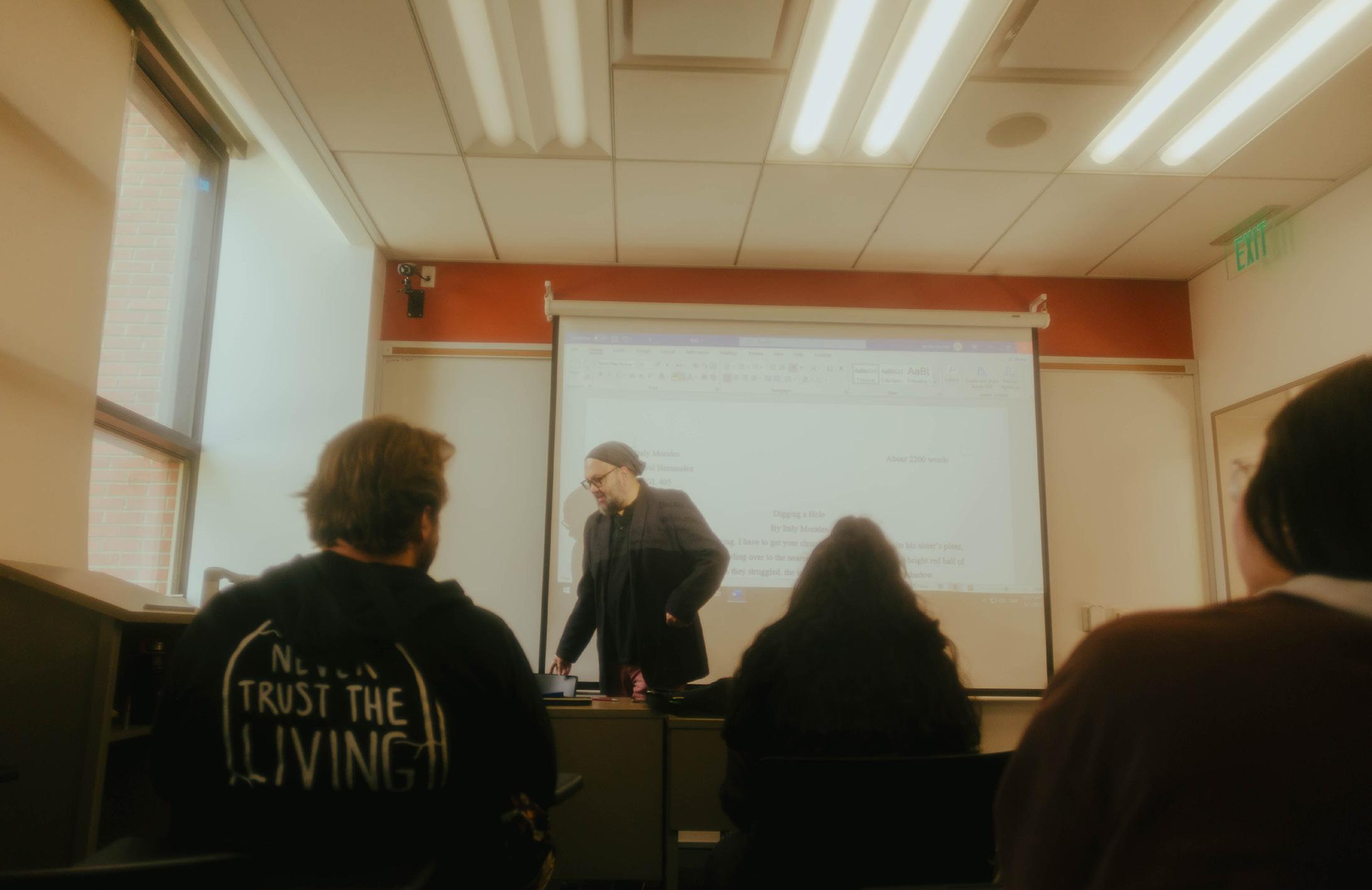
“I feel incredibly privileged to be in a position to apply for and receive this award,” Dr. Heidbrink said. “I’m really looking forward to learning alongside community members, who have long been collaborators in a much more sustained way. I’m grateful to our institution for allowing faculty to pursue these types of research opportunities.” —Vittina
Ibanez
ASPIRE 16
Psychology professor recognized by American Psychology Association
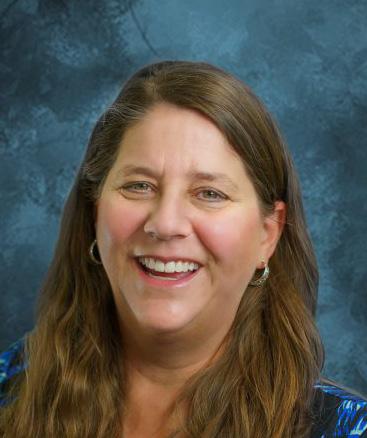
Highlighting her leadership, practice and scholarship in the area of sexual assault, the president of the American Psychological Association recognized DR. COURTNEY AHRENS with a Presidential Citation this spring. The recipients of the prestigious annual awards are hand-selected by the APA president based on the impact of their work.
Dr. Ahrens, a professor in the psychology department, first began her research on sexual assault 27 years ago, when few researchers were paying attention to the way survivors were treated when they sought help. Dr. Ahrens set out to understand how culture affects the way survivors are treated and provide recommendations for culturally enhanced services for survivors of sexual assault and intimate partner violence.
These days, Dr. Ahrens’s research focuses on the structure and content of sexual assault prevention, advocacy, and Title IX services on college campuses. With her research group, she is currently analyzing the websites of 2,400 four-year
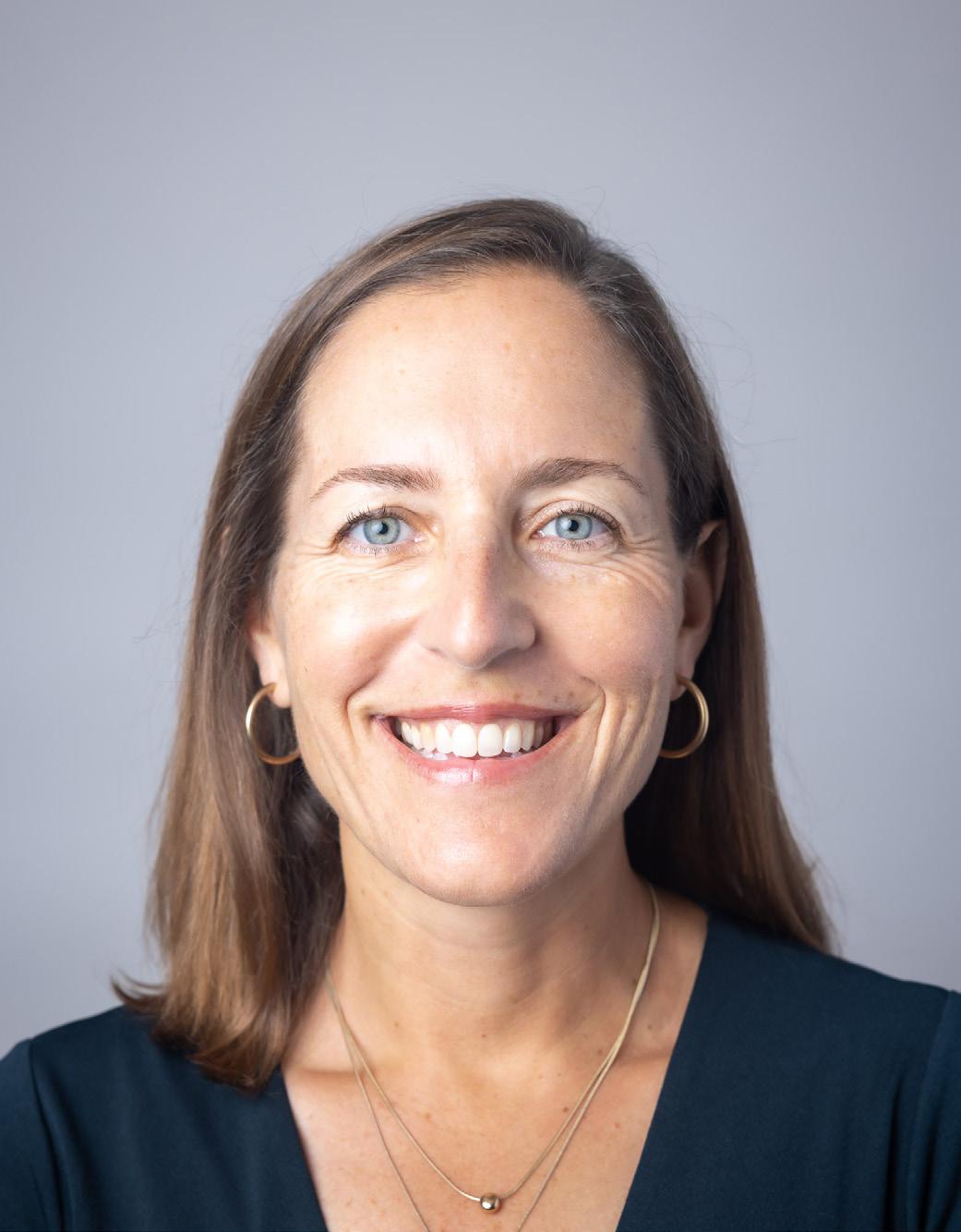
colleges in the U.S. to determine how they address sexual assault on campus; later, the group will survey the universities about the ways they provide services to sexual assault survivors, with the goal of identifying and promoting the most effective methods.
Throughout her career, Dr. Ahrens has focused on social change and practical implementation in her research. She has collaborated with local rape crisis centers and domestic violence shelters, worked with interdisciplinary initiatives such as the Orange County Women’s Health Project and non-profit foundations such as the Joyful Heart Foundation and Free From, and governmental organizations such as the National Institute of Justice and the US State Department.
Dr. Ahrens also works with Not Alone @ the Beach and co-founded the Academic Alliance for Survivor Choice, which advocates reforming mandatory reporting policies on college campuses so that faculty and other university staff are not required to report unintentional disclosures of sexual assault to the Title IX office against the survivor’s will.
APA president Thelma S. Bryant emphasized Dr. Ahrens’s research,
community involvement, and campus-based prevention work in the citation. Dr. Ahrens received word of the award in an email and was initially convinced it was a scam.
“I was so convinced that it wasn’t real that I actually emailed the APA president and told her that I thought someone had hacked her email,” Dr. Ahrens said. “She then had to email back and assure me that it was intentional; she then relayed this story when she presented me with the citation as evidence that I do this work from the heart, not for recognition—which is true.”
Story Section ASPIRE FROM LEFT:
HDEV professor
17
Dr. Lauren Heidbrink; psychology professor Dr. Courtney Ahrens.
—Robin Jones
“I was so convinced that it wasn’t real that I actually emailed the APA president and told her that I thought someone had hacked her email.”
Dr. Courtney Ahrens, psychology professor
CLA names new Associate Dean, Directors of Research, and India Studies Director
Four CLA faculty members stepped into new positions this summer.
DR. SEIJI STEIMETZ was named associate dean for enrollment management and student success. Previously the chair of the economics department and director of CLA’s Office of Economic Research, Dr. Steimetz served as the interim associate dean for the past year.
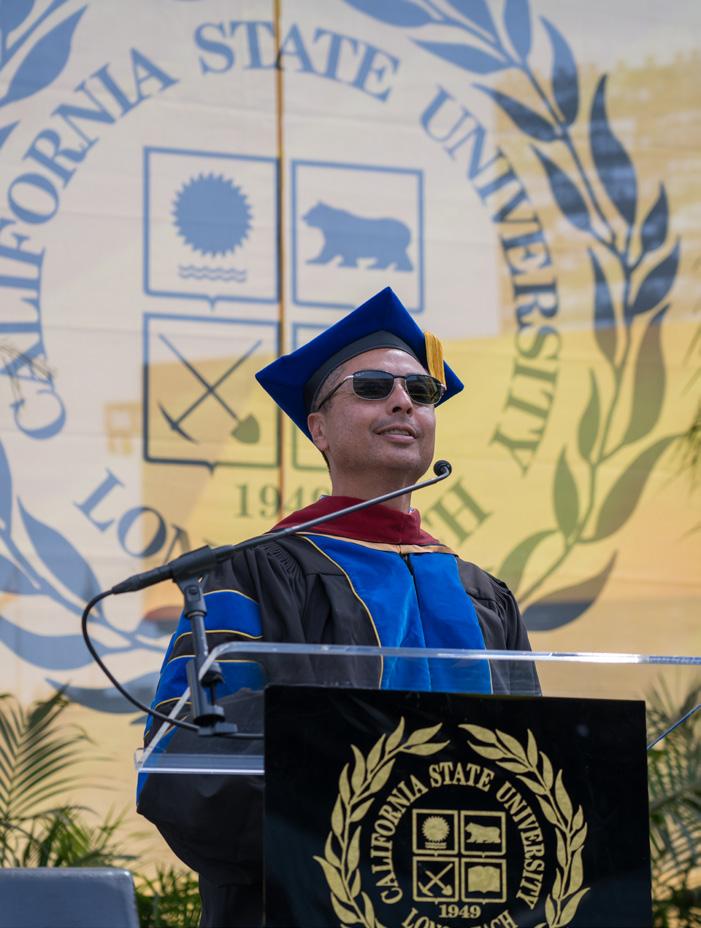
A first-generation student and proud product of California’s public university systems, he focuses his research on transportation, urban, and environmental economics. He developed the annual Long Beach Latino Economic Report and the Accelerate Long Beach economic forum series, and his efforts to promote economic development in the region earned him Centro CHA’s Nuestra Imagen Excellence Award and Mayor Robert Garcia’s Go Long Beach Award.
DR. ALI İĞMEN of the history department and DR. GWEN SHAFFER of the journalism and public relations department were appointed as co-directors of research for the college.
DR. İĞMEN, who joined the faculty in 2006 as an assistant professor of Central Asian history and was promoted to full professor in 2018, has published a book, 13 peer-reviewed articles and book chapters, and multiple reports. He has received several grants and awards, including from FulbrightHays and the Mellon Foundation, and is currently preparing two new NEH grants.

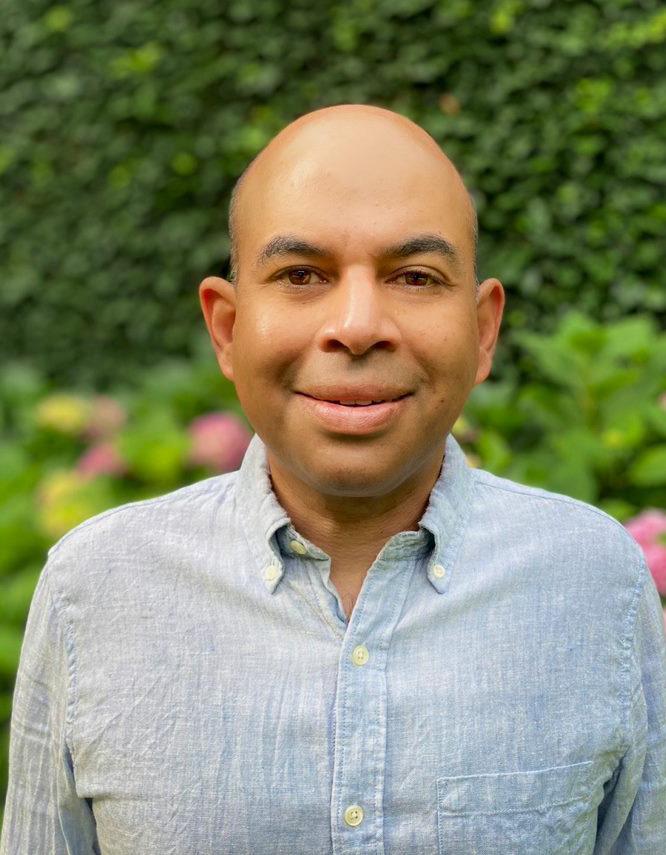
DR. SHAFFER joined the faculty in 2012 and was promoted to full professor this year. She has authored or co-authored 20 peer-reviewed journal articles and book chapters and several white papers on telecommunications policy challenges. She is currently the PI on a National Science Foundation-funded project focused on the city of Long Beach’s vision to use data in ethical ways that avoid reinforcing existing racial biases and discriminatory decisionmaking.
DR. MIHIR PANDYA will be the new director of the Yadunandan Center for India Studies beginning this fall. He has served as the center’s associate director since 2018, organizing, promoting, and leading programming such as the Annual Solanki Lecture, the longest-running endowed lecture series in the U.S. about South Asia and the South Asian diaspora. Dr. Pandya has been lecturer faculty since 2015, teaching for anthropology, human development, and the University Honors Program. —Robin Jones
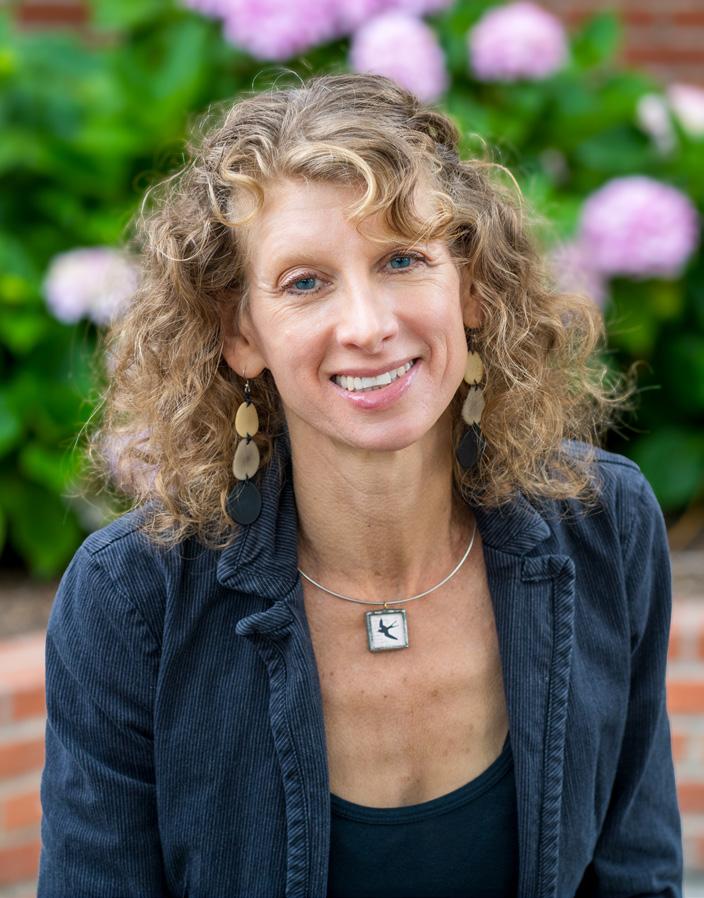
Story Section ASPIRE
18
CLOCKWISE FROM TOP LEFT: Associate Dean Seiji Steimetz; coDirector of Research Ali İğmen; Director of India Studies Mihir Pandya; and co-Director of Research Gwen Shaffer.
Spanish professor earns plaudits for work with Mental Health First Aid
DR. BONNIE GASIOR, a professor in the Spanish section of the department of Romance, German, Russian Languages and Literatures, was recognized along with two other CSU professors at the annual Mental Health First Aid Summit when the California State University system received the inaugural Momentum Award from the National Council for Mental Wellbeing.
Given to an organization “that has built considerable enthusiasm for Mental Health First Aid in their community,” the award celebrated the efforts that Dr. Gasior, Dr. Darci Strother at CSU San Marcos, and professor Sailesh Maharjan at CSU San Bernardino have made to certify faculty in MHFA across the CSU system.
Mental Health First Aid gives participants the skills and tools to identify, understand, and respond to symptoms of mental health and/or substanceuse challenges. Dr. Gasior initially took the 8-hour course in 2017 at the
recommendation of the then-director of CSULB’s Counseling and Psychological Services (CAPS).
She found that it was incredibly helpful in her role as a professor and subsequently pursued certification as an instructor. In
Health and Wellbeing Faculty Fellows, titles they have held since 2020. In order to make the training as ubiquitous as possible, Dr. Magruder coordinates with faculty center directors on each campus to promote MHFA training sessions led by Dr. Gasior, Dr. Strother, and professor Maharjan.
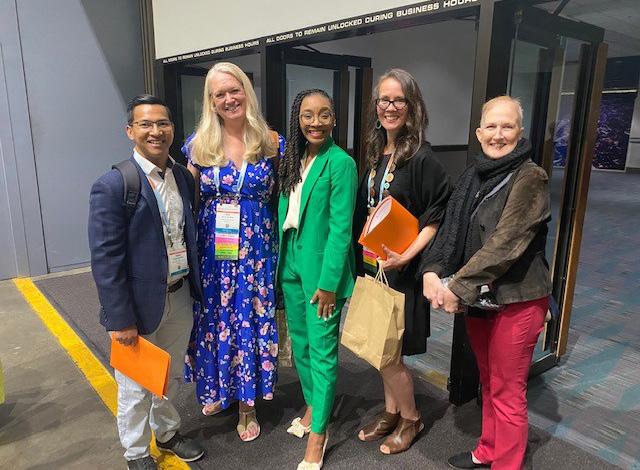
Going forward, Dr. Gasior hopes there will be more opportunities to certify additional instructors and to expand the program even further so that more faculty can benefit from the “accessible, interactive, relevant, and practical” training, and to “continue to do the work to make the CSU safer, stronger, and more resilient.”
2019, she and Dr. Strother connected with Dr. Emily Magruder, director of innovative teaching and future faculty development at the Office of the Chancellor. Dr. Magruder then invited them to be Student Mental
“Despite our rigorous academic preparations, faculty typically lack the skills that would enable them to have a conversation with another human (like a student) about their mental health,” Dr. Gasior said. “MHFA gives folks that basic knowledge—along with helpful language and an action plan—to approach someone who may need help, to listen non-judgmentally, to give reassurance and information, and to connect them to resources.” —Robin Jones
Story Section ASPIRE
19
Dr. Bonnie Gasior was honored for her work with the Mental Health First Aid program.
“MHFA gives folks that basic knowledge—along with helpful language and an action plan—to approach someone who may need help.”
— Dr. Bonnie Gasior, RGRLL professor
WINNING Ways

Story Section ASPIRE
2.0
20
WRITTEN BY Vittina Ibanez, Robin Jones and Olivia Peay
FROM LEFT: Tanisha Peoples and Julie Ortiz were honored this spring with President's Awards.
Photo by Em Chen.
Tanisha Peoples President’s Award for Employee of the Year — Leadership
As the director of advising for ATLAS, TANISHA PEOPLES manages a team of professional advisors, providing leadership and guidance as they steer College of Liberal Arts students toward graduation. This spring, she received the President’s Award for Employee of the Year—Leadership for her “significant contribution in providing quality leadership in the delivery of services to the campus community.”
When she was in college, Peoples considered a whole different type of career: She received her bachelor’s degree in sociology with a minor in criminology, law and society from UC Irvine and thought she was headed to law school. After an internship with a prosecutor’s office through the UC DC Program, she changed her mind and got a master’s degree in counseling (student development in higher education) from CSULB instead.
She’s been working in the CLA since 2001, when she took a job with the Learning Alliance Program as a Beach Beginnings coordinator. “I remember when we had a hard copy catalog. So I’m able to help my team when they get stuck, and I like having the knowledge to help them be successful. Our department works as a team. We have a really supportive network, and we look out for each other. If we’re doing well, students are doing well, and faculty are doing well.”
CLA administrative services manager Terie Bostic nominated Peoples for the award. “She gave me a heads up, and her words were really nice. I still thought there was no way I was going to win, and when I got the email, I was shocked. But then I was really humbled and pleased. When you’re working hard at something because it’s your passion, you really want people to have a good experience, and when people see that and recognize it, it’s nice to feel the love.”
ATLAS moved into a new building over the summer, and Peoples is excited to have her whole team under one roof. “My team finally feels full. We’re always busy, but it’ll be good to have some breathing room so I can streamline processes for my staff – and maybe find some new leadership opportunities where I can make a difference for even more people.”
Julie Ortiz
President’s Award for Employee of the Year — Innovation
The list of things CLA curriculum and personnel manager JULIE ORTIZ handles for the college seems almost never-ending. Not only does she handle all the lecturer contracts, she also maintains the entire class schedule for the college, cleaning it up and making sure it’s error-free before student registration. And that’s not all: She also coordinates all CLA scholarships, working with the dean’s office and the departments to monitor their endowment balances and help them through the review and awarding process.
For her work improving the scholarship award process, Ortiz won the President’s Award for Employee of the Year—Innovation, which recognizes her “significant contribution in providing innovation in the delivery of services to the campus community.” Like Peoples, she was nominated by Terie Bostic. “I felt very honored that I got the award. I’ve been working very hard over the years, trying to get students more money. The love I got from people who reached out after they heard I won—I was really honored that they recognized my hard work.”
A CSULB graduate with a bachelor’s degree in fashion merchandising, Ortiz started her career with Strouds Linen. When the company went bankrupt in 2003, she was laid off, and in 2004, she landed in the CLA dean’s office as a fiscal assistant. She worked in several different departments before returning to the dean’s office as a fiscal manager, and she was soon promoted to her current position.
Ortiz enjoys learning everything she can about the processes and systems at her place of work. “I’m always looking for better ways to do things, better tools, ways to redesign internal forms or processes. I always want to listen and get feedback from our CLA staff. I work with pretty great people around campus. They’re so dedicated, and I appreciate all of them.”
She’s looking forward to taking advantage of more leadership opportunities in the future and helping her staff transition to new systems online. “I’m ready to go. It’s kind of exciting. I love training and working with staff.”
ASPIRE 21
Once again, the College of Liberal Arts earned campuswide recognition in 2023, as multiple faculty and staff members were honored with university awards in the spring. We caught up with them over the summer to find out what they’re doing, what drives them, and what they hope to accomplish next.
Kim Vu Outstanding Professor Award
DR. KIM VU was honored this year with the Outstanding Professor Award for her work in the department of psychology. A recognized expert in human-computer interaction, she is the associate director for both the Center for Usability in Design and Accessibility and the Center for Human Factors in Advanced Aeronautics Technologies at CSULB. She is also a principal investigator on the Building Infrastructure Leading to Diversity (BUILD) program, which aims to provide hands-on research experience for undergrads so that they can excel in doctoral programs.
Her basic research focuses on actionselection: in essence, how people decide what to do next. This research has implications not only for “how displays and controls should be organized and mapped in order to achieve efficient performance, with minimal errors,” she said, but also for designing interfaces for accessibility.
Her applied research focuses on human factors and human-computer interaction. “Human factors is an interdisciplinary area of research that includes applied cognitive and engineering psychology,” she said. “It is concerned with improving interface designs or products for human use.”
Her contributions to this area include producing research findings to inform policies for the integration of unmanned aerial systems into the national airspace and adoption of new air traffic management concepts and automation technologies.
Dr. Vu engages in service across the campus, at the department, college and university level. She got started because it was required, she says, but ultimately found it quite fulfilling. “The college- and universitylevel committees allowed me to meet new people, and I have learned a lot about working with individuals from different disciplines.”
Kathryn Perkins Early Academic Career Excellence Award
DR. KATHRYN PERKINS joined the department of political science faculty in the fall of 2017. She first decided to study political science because she wanted to “engage with pressing questions about social and political meaning, organization and change.” At CSULB, she’s done just that, focusing her
research on the intersection between the law and LGBTQ politics. She was honored with the Early Academic Career Excellence Award in the spring.
Currently, she’s focusing on the framing of transgender identity in the law and the implications of this construction on the politics of transgender rights, a research agenda “inspired by my own queer and trans identity and experiences with discrimination and my desire to challenge and transform law and policy for other LGBTQ folks.”
Overall, she aims to expand the general knowledge of how law and politics impact LGBTQ individuals and communities. “My hope is that the insights developed through my scholarly work can help shape legal and political activism toward combating gender and sexual oppression,” she says.
The best thing about working at CSULB, she says, is the community. “I have met so many amazing students and colleagues, built close friendships, and have felt very supported by this beautiful community throughout my career at CSULB.”
Guido Urizar President’s Award for Outstanding Faculty Achievement
DR. GUIDO URIZAR is a professor in the department of psychology and the director of CSULB’s PRO-Health Research Program, which strives to improve the health of traditionally underserved communities. He was awarded with the President’s Award for Outstanding Faculty Achievement for his involvement in the community and the classroom.
In his research, Dr. Urizar works to identify stress responses during pregnancy in low-income communities and how they affect the baby’s outcome. “We’re interested in developing free health programs for these communities to promote the health of families,” he said.
Part of his work is serving on advisory boards for nonprofit organizations and hospitals. “We work together to reduce health disparities in low-income families,” he said. “I’ve always been invested in working with community organizations to improve health outcomes. I’m also invested in mentoring underrepresented students who want to get involved in this research.”
To those just getting started in public health research, he has some advice: “Listen to community stakeholders to better
understand what the public health issues are in the community and how to get involved in becoming part of the solution to address these issues. That’s the recipe for success in this field.”
Jennifer Fleming President’s Award for Outstanding Faculty Achievement
This spring, DR. JENNIFER FLEMING received the President’s Award for Outstanding Faculty Achievement, recognizing her service to the college and the university. Dr.Fleming began working at CSULB in 2002 and was appointed chair of the department of journalism and public relations in 2016, a position she holds to this day. She also heads up the CLA strategic communications team, which launched, among other things, the weekly CLA Monday Memo e-newsletter—and this magazine.
The JPR department has gone through numerous changes since she took over as chair. “The department has grown in majors, minors and FTEs; we introduced a new bachelor’s degree in public relations and a minor in public relations; we were reaccredited with flying colors; we created JPR Internship Week and secured more than $60,000 in funding for internship equity scholarships; we added two new student media outlets, DÍG en Español and Beach TV News; and we created great new classes based on student interest and trends in the field, including the Business of Journalism, Entertainment Publicity, Food, Travel and Lifestyle Storytelling, and Drone Storytelling.”
She developed one of the department’s most popular classes, Journalism 160: Understanding News Media, in 2007 in response to “sweeping technological changes affecting news production, distribution, and consumption that were blurring the lines between verified and independent news content and everything else.” At the time, Dr. Fleming says, social media and smartphones were in their infancy, and “fake news” discussions focused primarily on whether Jon Stewart, host of the satirical news program The Daily Show, was a journalist.
“Now, smartphones and social media are ubiquitous,” she said, “the phrase “fake news” has turned into a rhetorical weapon, and the fast-moving media ecosystem has become even more precarious and dubious, suggesting a greater need for news literacy education.”
ASPIRE 22
Aparna Nayak
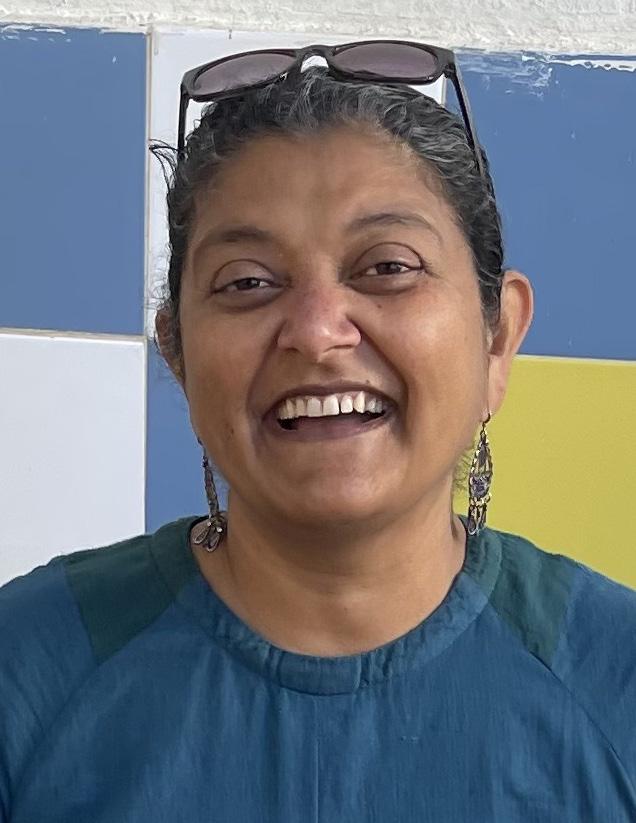
President’s Award for Outstanding Faculty Achievement
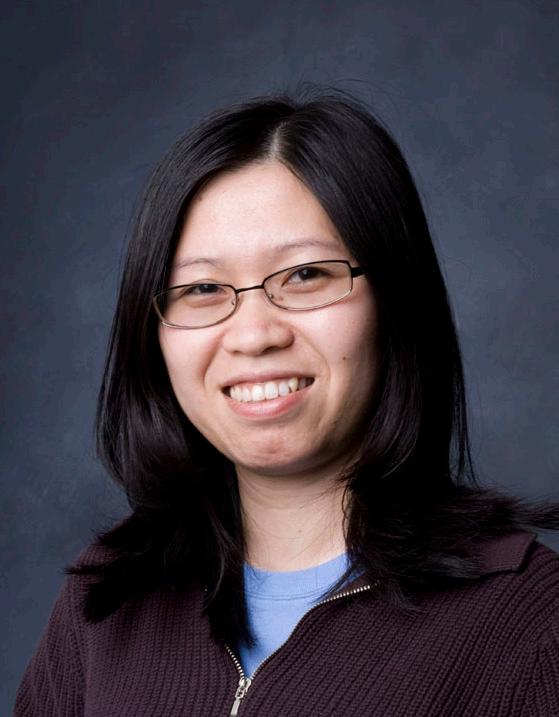
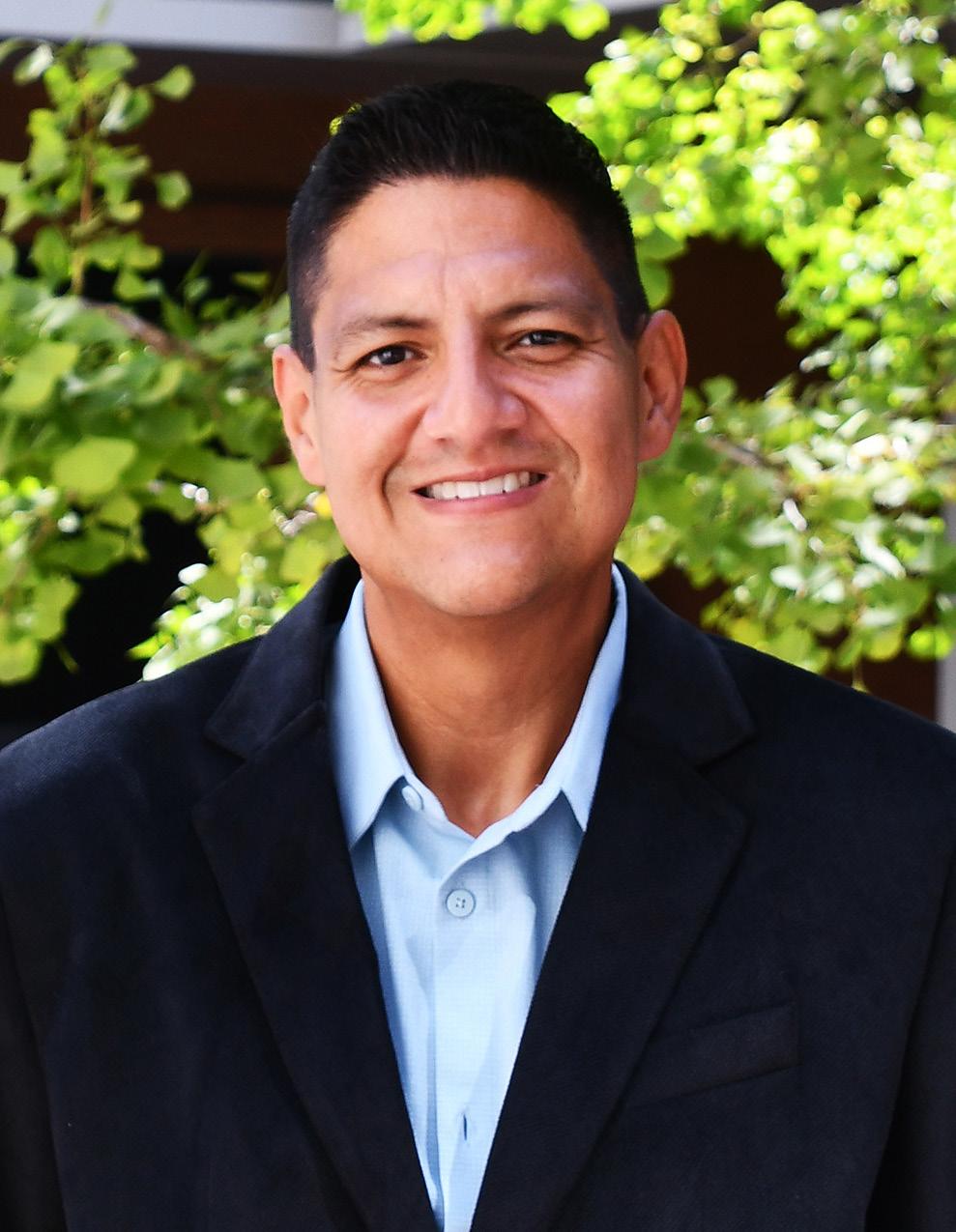
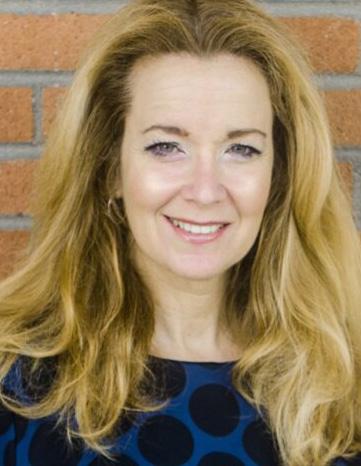
DR. APARNA NAYAK, a professor of French and Francophone Studies, was honored this spring with the President’s Award for Outstanding Faculty Achievement. The chair of the romance, German and Russian languages and literatures department, she studies France in World War II and the relationship between literature, memory, history and politics. She’s been at CSULB since 2006.
When it comes to teaching French language and literature, she says, it’s hard to pick a favorite class—or even a favorite level to teach. “In lower-division language classes, students’ progress is visible from week to week and month to month. They expand their vocabulary, learn new grammatical structures, explore the culture, and before you know it, they are able to speak, read, and write ever more complex (and culturally accurate) sentences in the target language! In upper-division classes, students feel frustrated because the progress is not as visible as in the lower division. But when students look at their earlier assignments for their end-of-semester portfolio, they are astonished at how much they have learned and improved.
“At the graduate level, students are expected to speak, read, and write in French at a much higher proficiency level, use theoretical frameworks in their research papers, and write complex, nuanced, wellresearched and well-analyzed papers—and it’s a lot of fun to accompany them on that journey as well.”
Her main goal for the immediate future is to get undergraduate students to understand how they can combine language study with literally any major. “And more important,” she says, “why they should do so! CSULB is truly a language hub among all CSUs, and I take great pride in that.”
Given her love for the classroom, it’s no surprise that her favorite thing about teaching at the Beach is the students. “There are a lot of challenges in working at a CSU, but when you see where our students come from and what they accomplish—in the classroom, in labs, theaters, concert halls, clinics, everywhere—it makes the struggle worth it.”
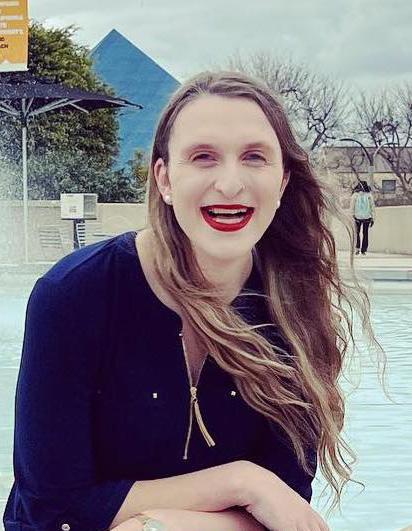
ASPIRE 23
1. Kim Vu
2. Kathryn Perkins
3. Guido Urizar
4. Jennifer Fleming
€
5. Aparna Nayak
CLA in the community
 WRITTEN BY Vittina
WRITTEN BY Vittina
2.1 ASPIRE
24
ABOVE: Dr. Gwen Shaffer led data walks through Long Beach to determine what residents knew and thought about the city's data collection practices.
Ibanez, Robin Jones and Olivia Peay
Dr. Gwen Shaffer is currently designing and deploying a digital rights platform for the city of Long Beach. Part of that will be developing text and iconography conveying how the city uses specific technologies.
Dr. Gwen Shaffer was conducting research while serving as chair of the Long Beach Technology and Innovation Commission when she noticed something.
Most people, she realized, are aware that social media companies and retailers collect data on them anytime they scroll through posts on their phone or shop on their laptops. But many people fail to realize how much data city governments gather about them on a daily basis.
City-owned WiFi routers and security cameras mounted on public buildings, for example, can track a person’s location, even if they’re just walking by. And automatic license plate readers in police vehicles might scan a driver’s license plate hundreds of times in just one year.
“I was really surprised by what people knew and what they didn’t know,” said Dr. Shaffer, a professor in the journalism and public relations department. “That struck me, as a researcher, as something that would be interesting to pursue.”
That spark of curiosity led to Dr. Shaffer’s latest research: designing and deploying a digital rights platform for the city of Long Beach. The National Science Foundation’s Smart and Connected Communities program

awarded Dr. Shaffer and two co-principal investigators—Long Beach’s smart city manager Ryan Kurtzman and Center for International Trade and Transportation director of research Dr. Tyler Reeb—a $147,300 grant they will use to focus on the city’s vision to use data in ethical ways that avoid reinforcing existing racial biases and discriminatory decisionmaking.
Dr. Shaffer and her co-PIs aim to develop text and iconography conveying how the city uses specific technologies, what data the devices collect, and how the city uses that data. They will also work on a plan for deploying that text and iconography on strategically placed signs or digitally embedding it within civic technologies like sensors, cameras, and mobile
payment kiosks.
The platform will include an app where Long Beach residents can learn more about data collection, update their data collection preferences, and share comments or concerns with local government officials. The ultimate goal is to develop a way for residents to opt out of data collection.
“We’re lucky that in Long Beach, the city government is interested in advancing these goals,” Dr. Shaffer said. “I’ve talked to colleagues who conduct data privacy research in cities where local government officials are uninterested in working with them. But Long Beach wants to be accountable and transparent.”
1.1 ASPIRE 25
Journalism professor leads the way in Long Beach’s data privacy initiatives
25 ASPIRE
CLA group teams with the city of Long Beach to study guaranteed basic income
When former Long Beach mayor Robert Garcia decided in 2021 to explore the possibility of launching a guaranteed basic income program in the city, he turned to CSULB’s Office of Economic Research, led by CLA associate dean Seiji Steimetz
Dr. Steimetz and the OER collaborated with a city task force to develop a framework for the city’s pilot program. They recommended providing the guaranteed income to single-parent households in Long Beach’s 90813 zip code, where they believed it would have the most benefit.

The city’s program, currently underway, will grant $500 a month to 250 households living at or below the poverty level for one year. Dr. Steimetz and economics professor Dr. Mariya Mileva are researching the economic and social mobility outcomes of the program, while sociology professors Dr. Kris Zentgraf and Dr. Kerry Woodward are studying social metrics, such as the stress levels and overall health and wellness of the recipients.

“Dr. Steimetz considered that we need to look at these kinds of problems not only through an economic lens, but also through
a social and cultural lens,” Dr. Zentgraf said. “Together, we want to move away from focusing not only on how people spend their money, and focus instead on how extra income impacts their quality of life and gives them investment opportunities.”
With their findings, the team hopes to help the city—and other guaranteed basic income programs across the country—refine and improve their approach, and, as a result, change the way they address poverty. Dr. Zentgraf and Dr. Steimetz believe that the program will convince lawmakers to invest more into their communities and shift the poverty narrative.
“We’re directly in the conversation, so when we develop results or findings, we have a voice at the table and will actually be listened to,” Dr. Steimetz said.
Dr. Zentgraf agreed. “We can talk about the benefits of this and similar programs to inform policy conversations about best design and practices to meet the needs of low-income families. This type of research also helps policymakers on both the local and federal levels to reflect on the larger topics of income and racial/ethnic inequality, homelessness, mental health, and hunger, to name a few, and challenges them to think in new and more nuanced ways about how to directly confront these social problems.”
Story Section ASPIRE 26
Sociology professor Dr. Kris Zentgraf (below) and CLA Associate Dean Dr. Seiji Steimetz hope to help Long Beach refine its approach to guaranteed basic income and change the way the city addresses poverty.
“Together, we want to move away from focusing not only on how people spend their money, and focus instead on how extra income impacts their quality of life and gives them investment opportunities ”
— Dr. Kris Zentgraf, sociology professor
Dr. Jeffrey Blutinger, CSULB’s director of Jewish Studies, describes the partnership between his department and the Alpert Jewish Community Center as a “bridge between campus and community.”
“We work to be a bridge to bring the knowledge of academia into the wider community and to get the wider community more engaged and understanding of what we, on campus, do,” Dr. Blutinger said.
The partnership currently has two main components: a speaker series facilitated by Dr. Blutinger and held at the JCC, and a teacher-training program.
Last semester marked the first time since the pandemic that the programming was back to full strength. In the spring, the speaker series was back up and running, and more than 20 teachers enrolled in the summer training program. The fall’s speaker series will feature at least seven lectures, all of which will be open to the community.
Dr. Blutinger also hopes to eventually restart his Holocaust memorial program, in which a group of his students construct a memorial for the community.
Dr. Blutinger’s relationship with the
JCC spans 19 years; he attended meetings at the center even before he began teaching at the university. The collaboration between the two bodies started when the late Dr. Arlene Lazarowitz, who founded CSULB’s Jewish Studies program in 1999, established the speaker series.

“It just made a lot of sense,” Dr. Blutinger said. “It was to the benefit of the JCC that we were programming for them. We developed a work of finding speakers, and the community would come to hear it, so it matched their institutional purpose. And it made sense for us. People want to go where they’re comfortable.”
For community members who find the CSULB campus intimidating, the JCC acts as a more inviting, convenient hub. Convenience is necessary considering the wide net the renowned program draws.
“We draw people from north Orange County, all across Long Beach, Lakewood, San Pedro to Westminster, Seal Beach, Huntington Beach and up to Paramount,” Dr. Blutinger said. “I get a lot of positive feedback from the speakers I bring in.”
1.1 ASPIRE 27
ABOVE: Dr. Jeffrey Blutinger runs a speaker series and a teachertraining program at Long Beach's Alpert Jewish Community Center.
“We work to be a bridge to bring the knowledge of academia into the wider community and to get the wider community more engaged and understanding of what we, on campus, do.”
— Dr. Jeffrey Blutinger, CSULB Director of Jewish Studies
Jewish Studies works with the Alpert JCC to bridge campus and community
Sociology professor leads protest against proposed curriculum
Dr.Leakhena Nou has studied how social stress affects the first-generation survivors of the Khmer Rouge and postKhmer Rouge generations for much of her academic career. So it was no surprise that the Orange County Department of Education (OCDE) reached out to her when they were creating a K-12 curriculum about Cambodians in California, as required by California Senate Bill 895, passed in September 2018.
They hoped Dr. Nou, a medical sociologist and CSULB professor of sociology, would serve as a consultant. But when she found out the curriculum would focus exclusively on the four years of the Khmer Rouge genocide, she declined and warned the OCDE that the narrow focus of the lessons would risk traumatizing or retraumatizing multiple generations of Cambodians.

Just a few months later, though, she learned that they hadn’t listened to her warning. Local Cambodian elders knew
her from her work as executive director of the Applied Social Research Institute of Cambodia, which restores, distributes and implements procedural justice for Cambodian Americans and survivors of the Khmer Rouge. They were concerned with what they were hearing and experiencing at “listening sessions” held by the OCDE, and they asked for her advice.
“I knew I had to take action to stop the exploitation of and perpetuation of harmful negative stereotypes of, and resulting bias and discrimination against, my people and culture,” she said.
She wrote an open letter to the California legislature in December of 2022, expressing her concerns.
“[It] is as outrageous as it is damaging to the people it purports to recognize and honor; even the curriculum’s ‘genocide’ title perpetuates the image of Cambodians as victims,” she wrote in the letter. “This is akin to presenting Jewish American history as only the Holocaust, or African American history as only slavery – either of which is unthinkable.”
After reaching out multiple times to state senators Lena Gonzalez and Janet Nguyen, the sponsors of the bill, and
Dr. Leakhena Nou has been working to amend proposed K-12 curriculum about Cambodians in California for more than a year.
getting no substantive response, she wrote her own amendment to the bill. In April, she was thrilled to learn that the bill had been revised—until she learned that the amendment she had written had essentially been cut and pasted into the bill, almost word for word, without any acknowledgment that it was her work.
The bill, now Senate Bill 369, is currently languishing in the legislature, with no vote on the horizon. Dr. Nou continues to keep a close eye on the situation.
“If this is about Cambodian history, they’re wiping out the Cambodian voice and narrative,” she said. “I just keep plugging away. I’ve struggled throughout my career to do the right thing for the community and protect them from harm. I’m doing this for the future of all Cambodians, so that we are not used as a commodity by politicians or others in power.
“Cambodians should have the right to their own historiography without interference from the politicians who are not trained as scholars or educators or curriculum developers. I consider the politicians’ action as a form of colonized legislation and harmful to my community.”
Story Section ASPIRE 28
“Cambodians should have the right to their own historiography without interference from the politicians who are not trained as historians or curriculum developers.”
— Dr. Leakhena Nou, sociology professor
STUDENT success

ASPIRE 3.0 29
WRITTEN BY Olivia Peay and Vittina Ibanez
CLA Outstanding Baccalaureate winners reflect on their time at The Beach as they look to the future
Every spring, the college names its top graduates: We caught up with the 2023 honorees before they took the next step on their educational and career paths.
Hailing from Sacramento, NICKEE O’BRYANT graduated this spring with a B.A. in international, French and Francophone studies, along with a minor in translation. She was delighted to receive the Outstanding Baccalaureate award and happy to share the news with her family.

Choosing to double major was not easy, O’Bryant said, but her studies went handin-hand, and she’s loved language since high school. The thought of furthering her studies by traveling abroad gave O’Bryant a sense of fulfillment; in spring of 2022, she made the wish a reality by spending a semester in Paris.
Working as a research assistant through Undergraduate Research Opportunity Program with Dr. Christine El Ouardani, O’Bryant explored how immigrating to France impacted North African youth. She also aided Dr. Susan Carlile in researching French influence on 18th-century magazines.
Over her four years at CSULB, O’Bryant joined Translation at The Beach, the International Studies Student Association and College Corps. Through an internship with Food Finders Inc., a Long Beach-based nonprofit that aims to eliminate hunger, O’Bryant also developed a passion for reducing food waste, which she explored in
her senior thesis on food insecurity in the United States.
“I didn’t know much about food waste before I joined Food Finders last September; it’s impacted me in my own household and how much I waste,” she said. “I’ve been able to understand more about why hunger persists in the United States and globally.”
O’Bryant plans to remain in Long Beach and continue her internship with Food Finders while she considers various career pathways, including graduate school in public policy.
“I'm a ‘wherever the wind takes me’ type of person,” O’Bryant said. “I could definitely see myself going back to Europe for a career, or somewhere else. I'm really excited, and I know that whatever I choose, even if it’s different from what I do now, I’ll be proud to do it.”
HUY PHAN, who won both the Outstanding Baccalaureate award and the Outstanding Undergraduate Student in Research, Scholarly, and Creative Activities award, overcame financial burdens and cultural differences to earn his B.A. in linguistics this spring.
Phan, who immigrated to the U.S. from Vietnam in 2016, began his academic journey at Cypress College. The Extended Opportunities Programs and Services office helped him transfer to CSULB in the spring of 2020.
While at The Beach, Phan conducted research on Bến Tre, a dialect spoken in southern Vietnam. His work will help those teaching English to Vietnamese speakers in the U.S. and aid language data processing for developers working to improve voicerecognition systems.
ASPIRE 30
RIGHT: Nickee O'Bryant, Outstanding Baccalaureate Award recipient
“I know that whatever I choose, even if it’s different from what I do now, I’ll be proud to do it.”
— Nickee O’Bryant, Outstanding Baccalaureate Award recipient
LEFT: Huy Phan, Outstanding Baccalaureate Award recipient
BELOW: Diana Than, Outstanding Baccalaureate Award recipient
CSULB’s Linguistic Association and McNair Scholars Program gave Phan, a first-generation student, “a true sense of belonging” and encouraged him to finish his degree. But earning recognition for his hard work wasn’t something Phan expected.

“I’ve never imagined something like this before, especially as a scholar from an immigrant background,” he said. ”When I first moved here, I didn’t have any language background. Achieving success in academia was not something I envisioned myself doing. I appreciate and am honored by the awards; it’s a testimony that my hard work has paid off.”
Phan appreciates the organizations and many individuals who contributed to his success, including his partner, his family, and linguistics professor Dr. Michael Ahland.
In the fall, Phan looks forward to continuing his research at UC Santa Barbara, where he will pursue a Ph.D. in linguistics. There, he hopes to work with Vietnamese organizations and serve as a mentor in the McNair Scholars Program so he can guide those with similar backgrounds to his.
DIANA THAN entered CSULB as a psychology major in 2019. Initially, the 22-year-old Orange County resident didn’t put a lot of thought into her choice of major, but over time, she grew to love it. Later, she developed a fascination with the political system and added a minor in political science.

During her time at The Beach, Than worked alongside psychology professor Dr. Courtney Ahrens to research the predictors and barriers that survivors of intimate partner violence encounter while obtaining a restraining order.
She also traveled to and attended conferences for her studies and participated in various programs while she completed her B.A., including BUILD and the Undergraduate Research Opportunity Program, which she is grateful to for providing her with opportunities. Additionally, Than found “many pockets of community” in the organizations she joined during her four years at CSULB.
“I served as treasurer for PSA [Psychology Student Association] and Psi Chi my junior year; it was so nice to have
my cohort to talk to,” Than said. “I’ve even found people outside my research through the Vietnamese Student Association who share my cultural background. I also worked with CSULB’s Womxn’s Collective to plan events for women of color as a council member. All these organizations made me feel so welcome.”
With her degree in hand, Than plans to take a gap year to reflect on her achievements, explore other avenues of psychology and complete her research with Dr. Ahrens.
ASPIRE 31
“I’ve never imagined something like this before, especially as a scholar from an immigrant background.”
— Huy Phan, Outstanding Baccalaureate Award recipient
CLA Best Master’s Thesis Awards go to students in English, Geography and Psychology
Every year, the College of Liberal Arts recognizes three graduate students with the Best Master’s Thesis award. We spoke with the 2023 winners to get a closer look at their research and experiences at The Beach.
GUADALUPE BARRAGAN found her acceptance letter to CSULB’s MFA program in her spam folder just one week before the deadline to officially commit to the university.
“When I saw it, I was like, ‘Oh my God, I almost missed it!’” Barragan said. “But it ended up being great. Once I was there and I got to meet all the professors I worked with, it just made all the sense in the world that I ended up there.”
Her journey to The Beach was fraught with challenges. Right out of high school, she took her father’s advice and enrolled in UC Santa Barbara’s engineering program. She found the coursework difficult, though, and transferred to Oxnard College in her hometown in 2017, where she took 100 units in just four semesters.

Then, just as she was about to return to UCSB as an English major, she was diagnosed with cancer and had to put her plans on hold – until the pandemic forced instruction online in 2020, allowing her to complete her bachelor’s degree.

Barragan chose to apply to CSULB in part because it was near the hospital where she was receiving chemotherapy, which informed her work as a creative writing student. She explains her master’s thesis, “PATIENT, ”as a “collection of vignettes that is a somewhat fictionalized version of my experience with cancer.”
“While I was in the program, I was also doing chemo and writing about it, which in a sense was great because I got to process a lot of the things I was going through with my writing,” she said. “Being a cancer patient, it does feel very fragmented. Sometimes
there’s a lot going on for a day, and then it just kind of gets really quiet and there’s nothing going on. Then it happens again. I really wanted the form to mirror that.”
Barragan will expand on her work at UCSB, where she’ll research metaphors and cancer rhetoric, including the characterization of patients as “fighters.” She will also be applying to Ph.D. programs and teaching jobs in Oxnard, something she is also passionate about.
“I would spend my summers volunteering in my little sisters’ classrooms as a teacher’s aid just for fun,” she said. “I think I’ve always loved being in the classroom.”
CAMERON MAYER began his master’s degree in geography in 2020 and had two months of in-person instruction before
ASPIRE 32
BELOW AND RIGHT: Guadalupe Barragan, Best Master's Thesis Award recipient
“ While I was in the program, I was also doing chemo and writing about it, which in a sense was great because I got to process a lot of the things I was going through with my writing.”
—Guadalupe Barragan, Best Master's Thesis Award recipient
being forced to move everything, including his thesis research, online. He remained undaunted, though, because he has always considered education his safe space. Continuing his education was a no-brainer despite the challenges.
The 25-year-old self-proclaimed nature enthusiast earned his undergraduate degree at CSULB but stumbled upon the core of his thesis while living in Barstow during the pandemic. His thesis, “New West Tension and Threatened Species Protection: The Western Joshua Tree Conservation Debate in the Morongo Basin, California,” came to him after he read about the debate surrounding the California Department of Fish and Wildlife’s proposal to list the Joshua tree as a threatened species. The DFW states that the proposal, which has been delayed multiple times, is a means to promote greater conservation measures to protect the Joshua tree.

“I saw that some people were really supportive, some people really angry, and so there were really charged perspectives over a pretty iconic species, and it fascinated me,” Mayer said.
Though Mayer sometimes found
his research challenging because of the limitations of the pandemic, he still found the process enjoyable.
“It was actually really fun to talk to people—some I agreed with more than others—and just see how they viewed [the Joshua tree] in terms of its value, its role in their community and how it should be protected or not going forward,” Mayer said.
Mayer is still figuring out what he wants to do with the research he has conducted. He’s sent it to many environmental groups, including the Mojave Desert Land Trust, to use as a possible resource, as well as other researchers with the same interests. Once the state figures out whether the Joshua tree will be listed as a threatened species, Mayer said, he may build upon his research.
The roots of 29-year-old TRONG PHAM’S master’s thesis took hold during his undergraduate journey at CSULB. Pham was a psychology major, and as a part of the university’s Building Infrastructure Leading to Diversity (BUILD) program, Pham, a Vietnamese American, was assigned Dr. Young Hee-Cho as his mentor.
With Dr. Hee-Cho, he began working
on research regarding fall prevention among older adults. Pham was intrigued by the work, and when he started his master’s degree, he decided to try to improve on the findings he made as an undergraduate. Thus began his master’s thesis, “Effectiveness of Dual-Task Training on Future Falls, Fear of Falling, and Quality of Life.”
“I liked the idea of improving older adults’ physical and psychological health, specifically preventing falls,” Pham said.
Pham’s research examined whether dual-task training—performing nonstrenuous physical exercise such as marching while performing cognitive tasks—would improve overall health in older adults. He found that such efforts, indeed, improved their health and “created a buffer to delay falls.”
“Not many studies looked at the longterm effects of dual-task training on onset of falls,” Pham said.
With his master’s degree in hand, Pham plans to continue with the university as a research compliance specialist and spend more time with his family. At some point down the line, he hopes to earn his doctorate in quantitative psychology.
ASPIRE 33
Cameron Mayer, Best Master's Thesis Award recipient

ASPIRE 34
CELEBRATING A NEW CENTER
FROM LEFT: CSULB College of Liberal Arts alums John Molina (Economics, 1986) and Rep. Robert Garcia (Communication Studies, 2002) celebrated the opening of the Long Beach Center for Urban Politics and Policy this June with Dr. Matthew Mendez Garcia, CLA Dean Deborah Thien and CSULB President Jane Close Conoley. The center, which supports and advances interdisciplinary research focused on Long Beach, is housed within the College of Liberal Arts. Dr. Mendez Garcia, a political science assistant professor, will serve as the center’s executive director, and a substantial gift from Molina will provide funding for much of the center’s work.

ASPIRE 35
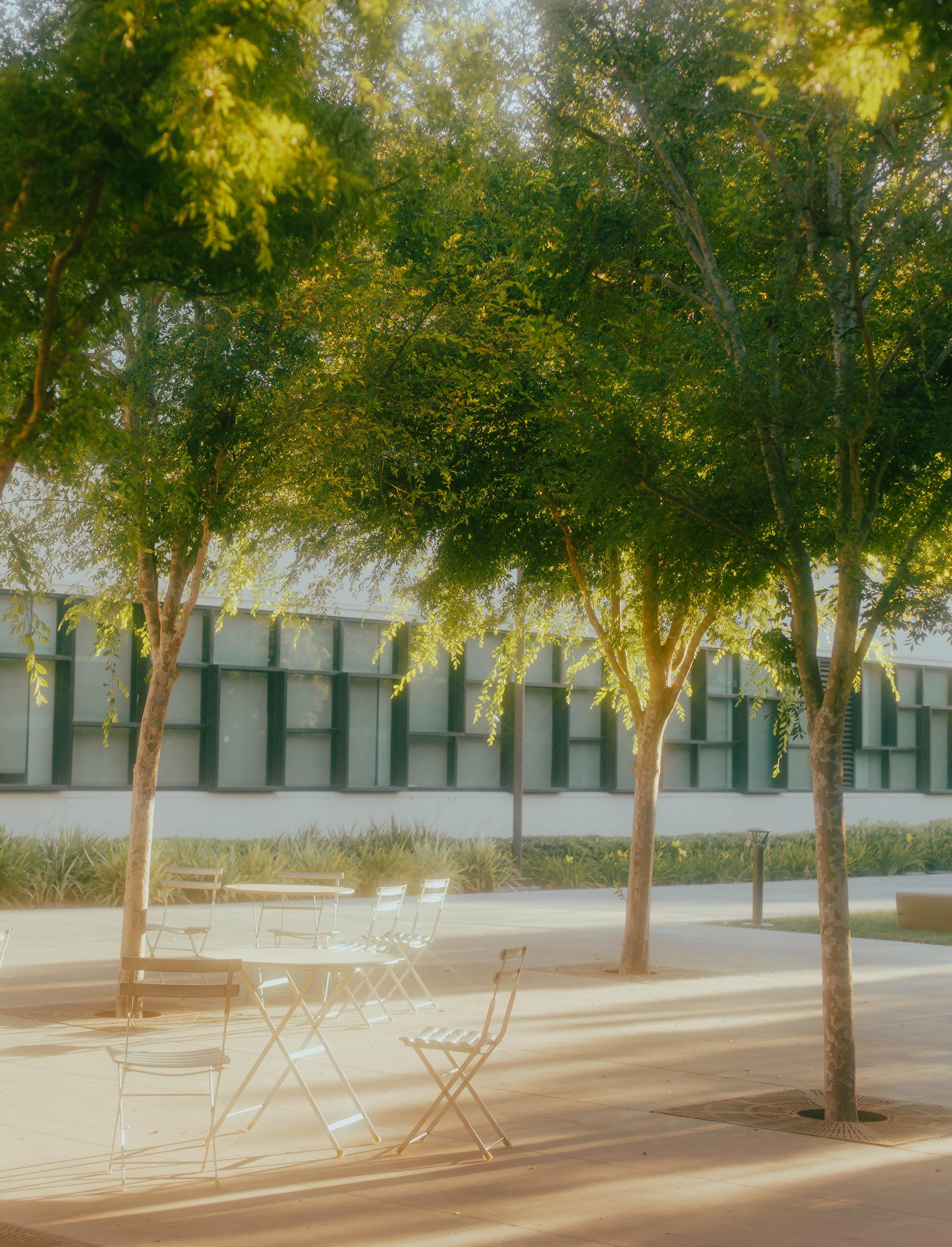








































 WRITTEN BY Vittina
WRITTEN BY Vittina














